Campagnolo turns up to the road disc brake party at last
Italian component king keeps details close to its chest – but the wait is almost over
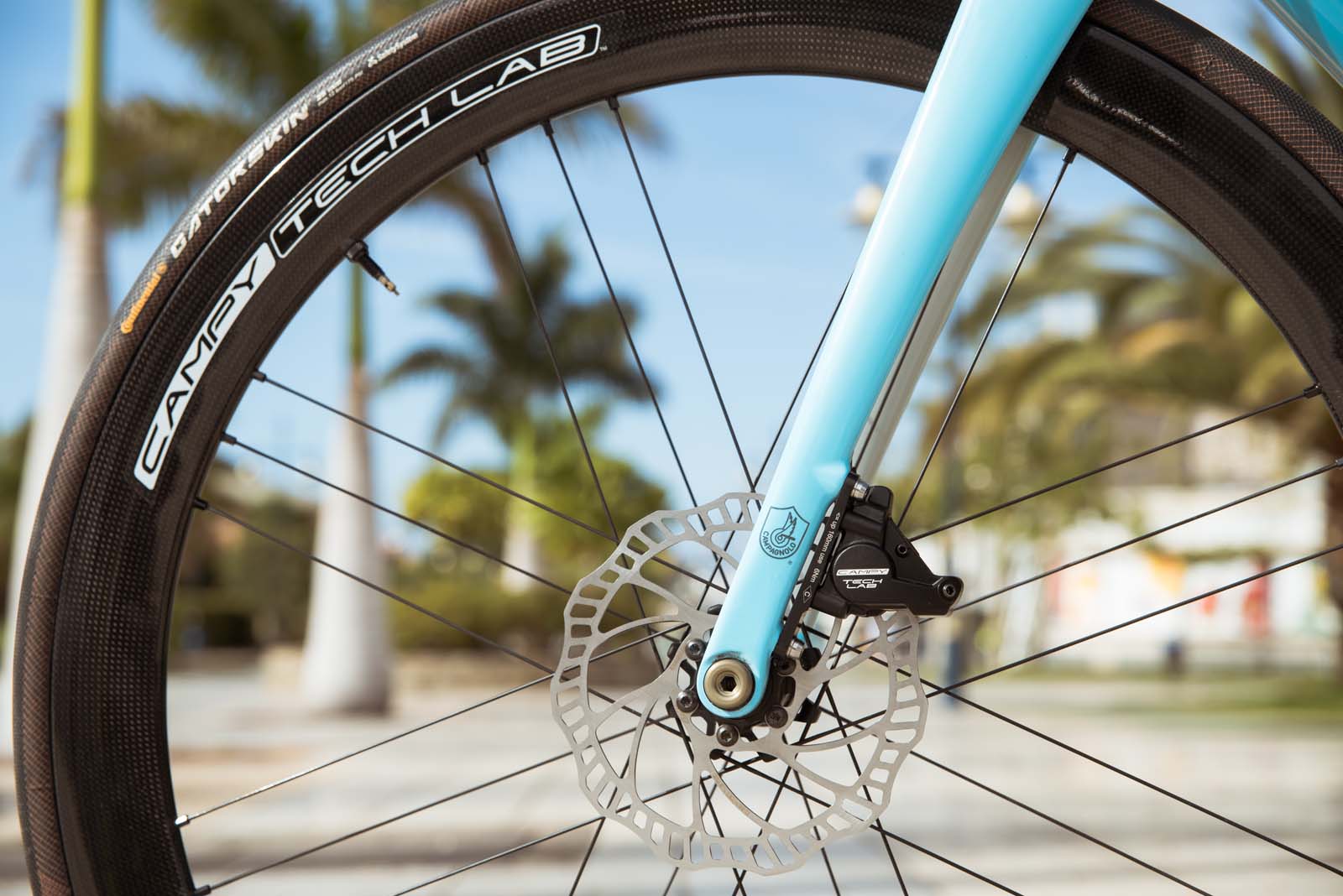
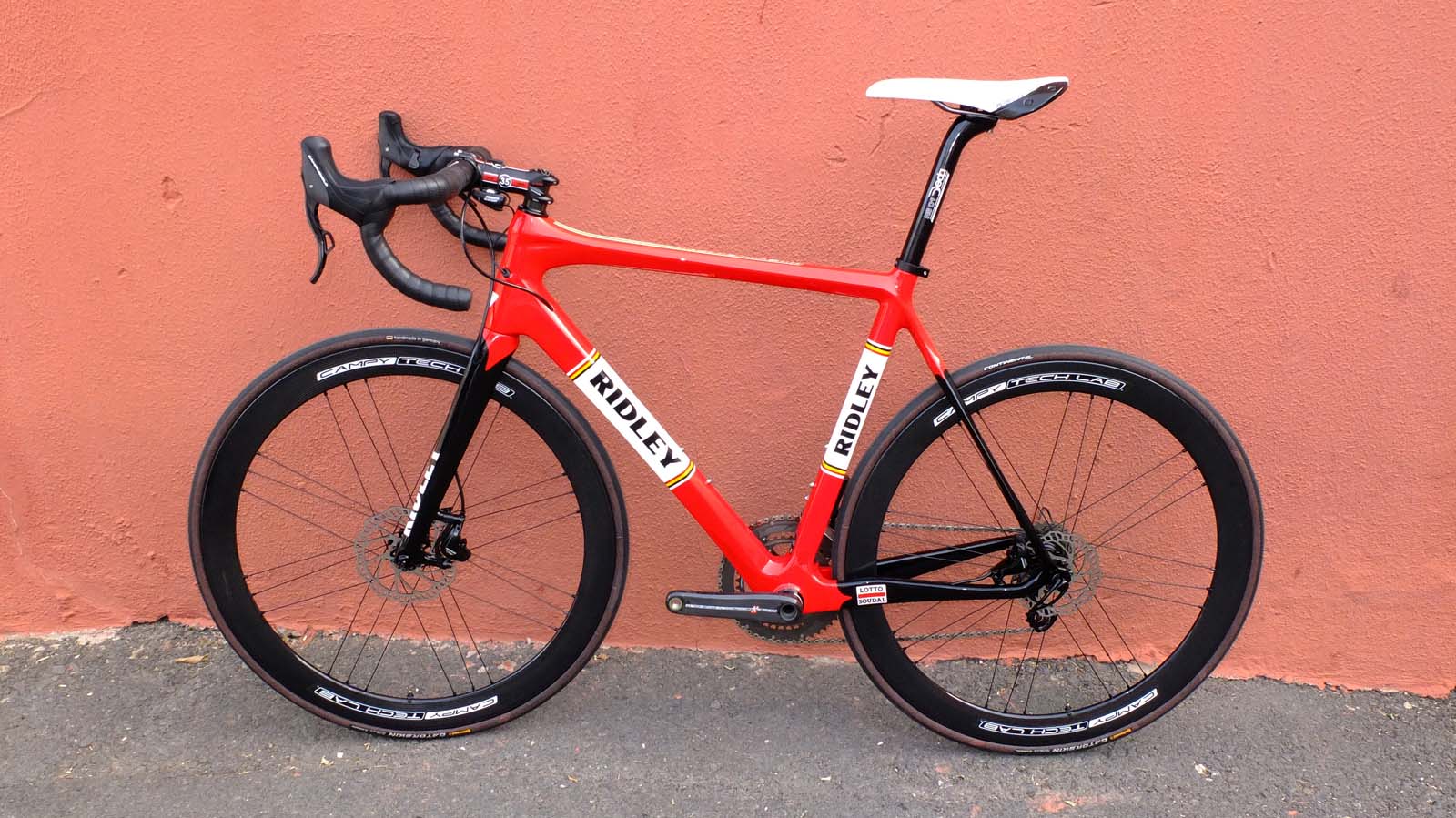
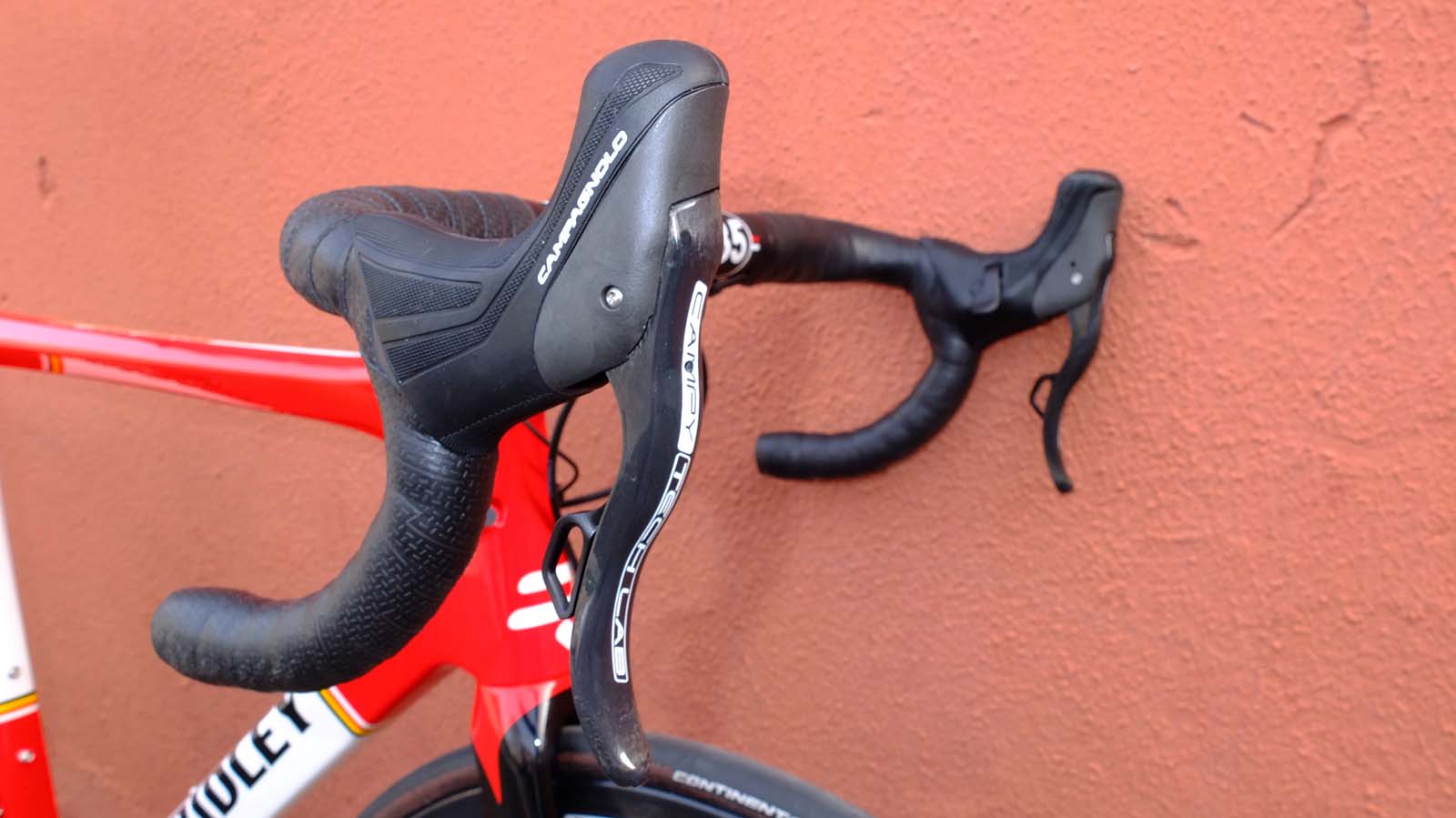
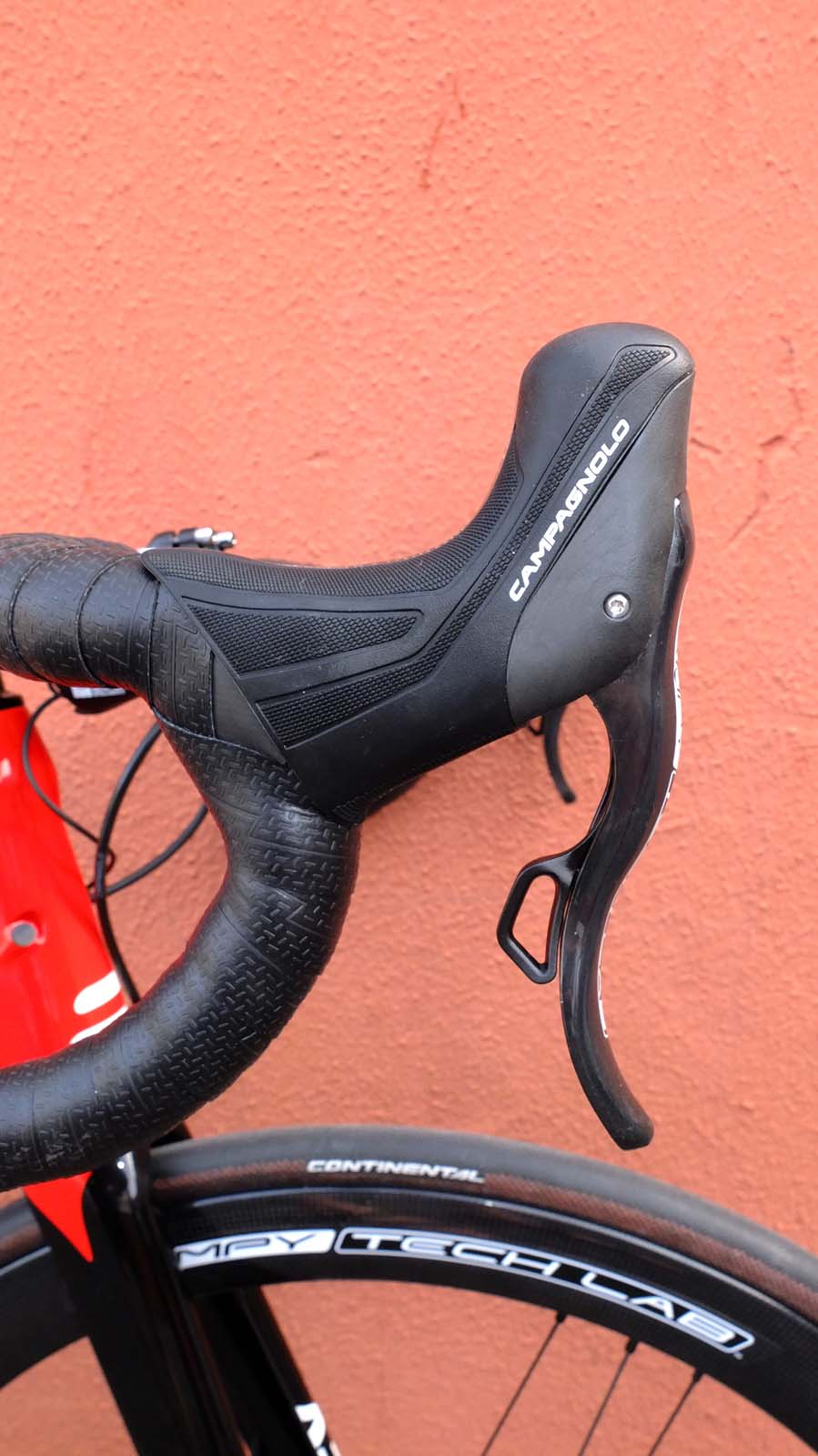
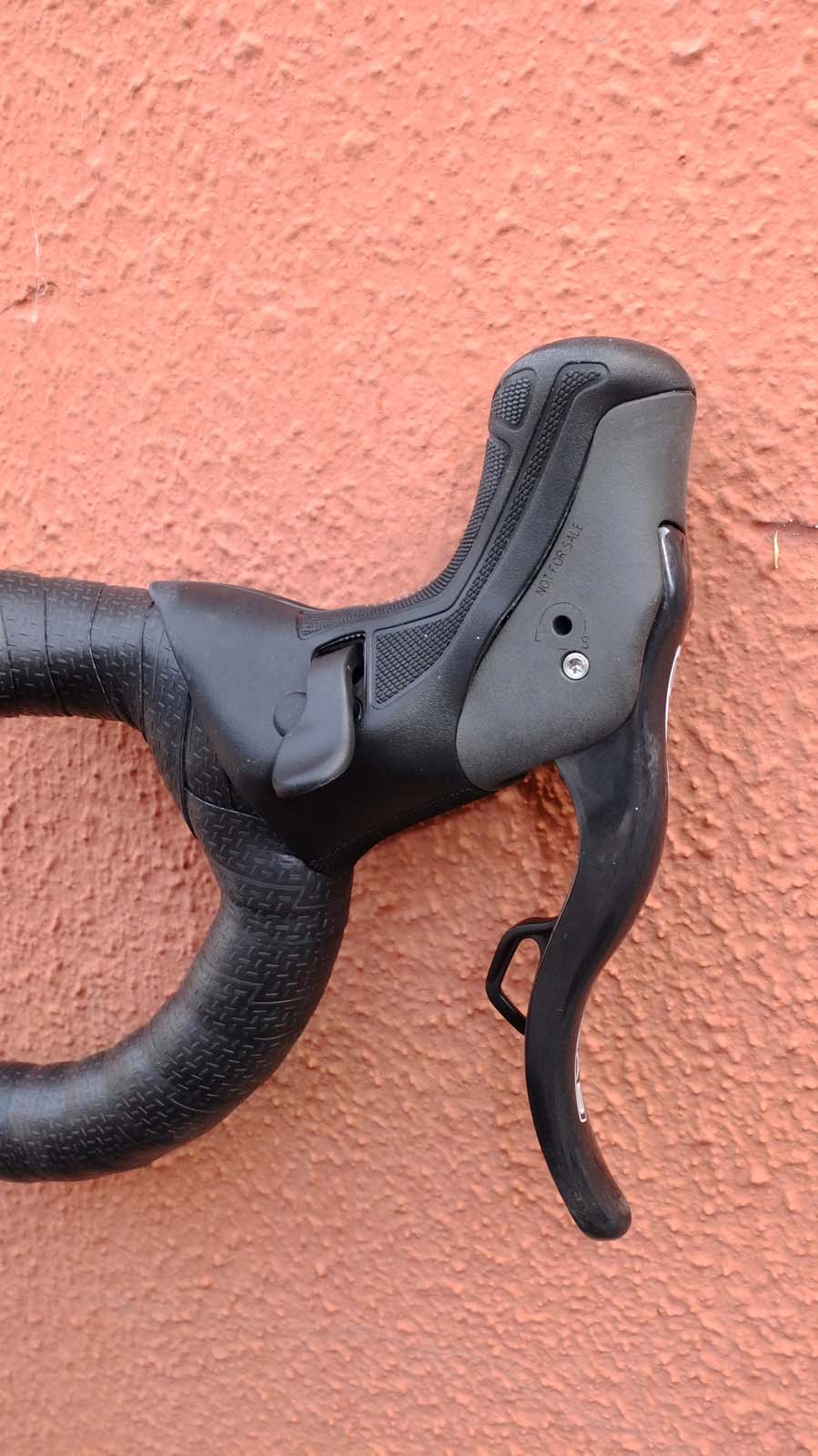
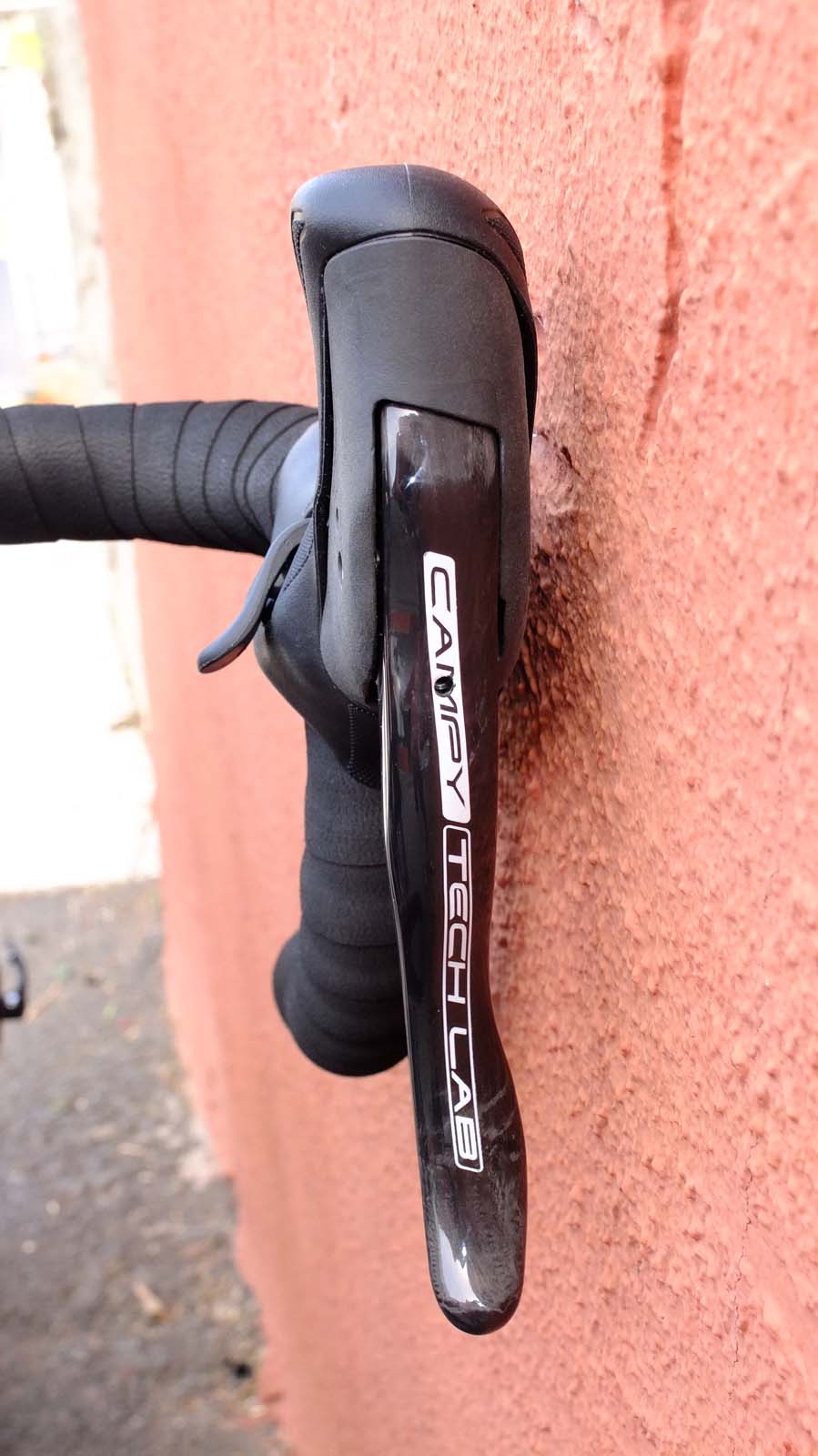
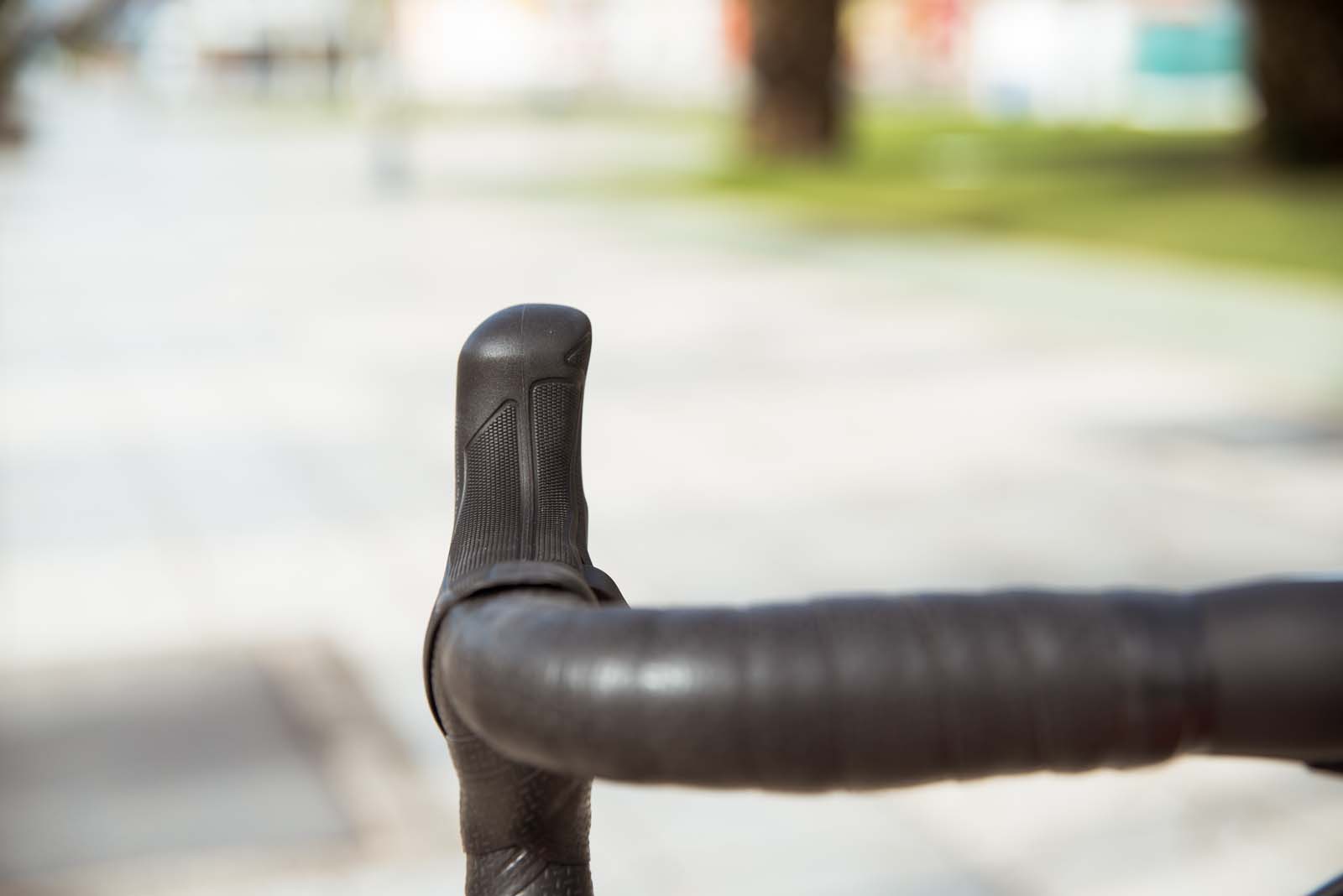
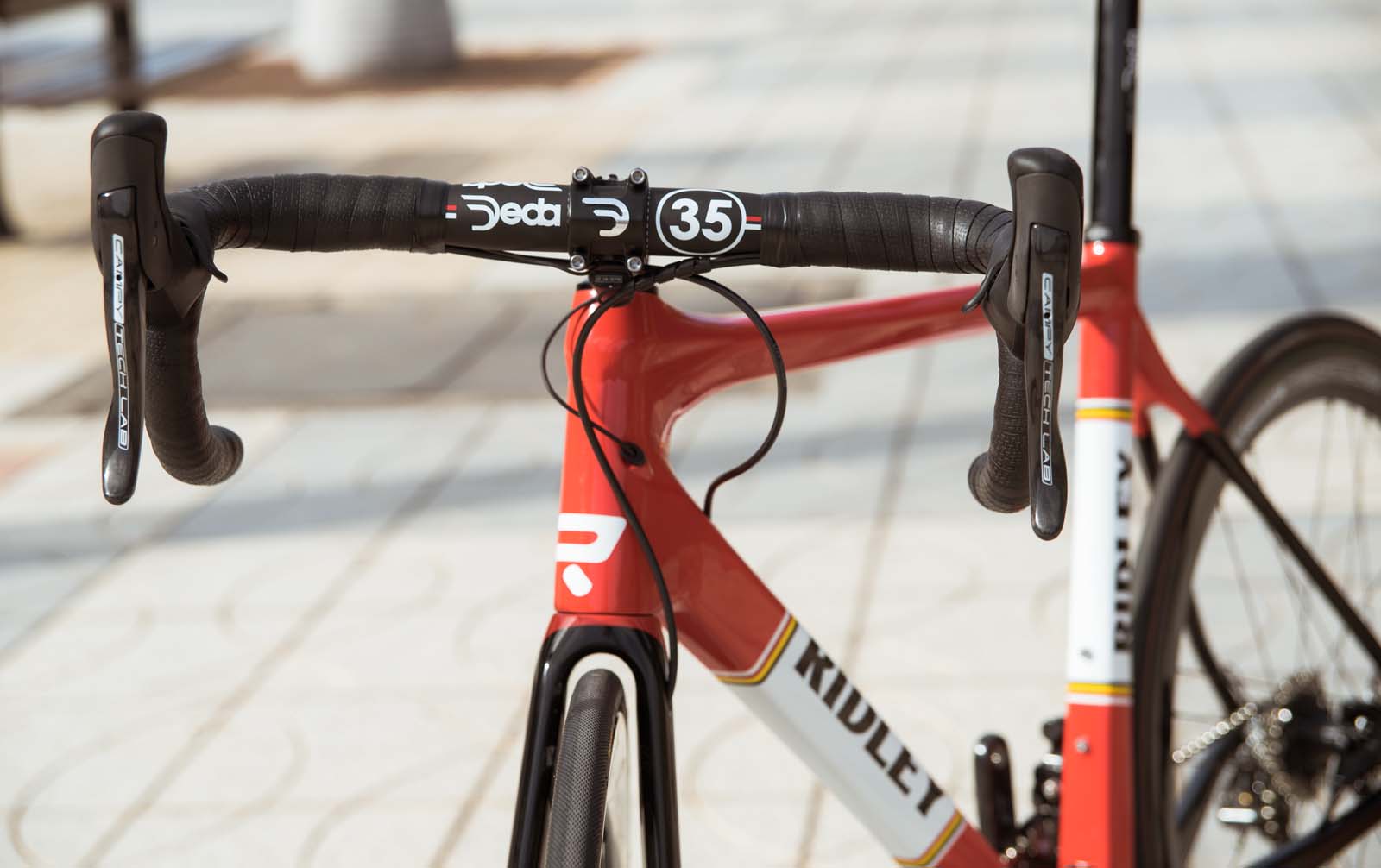
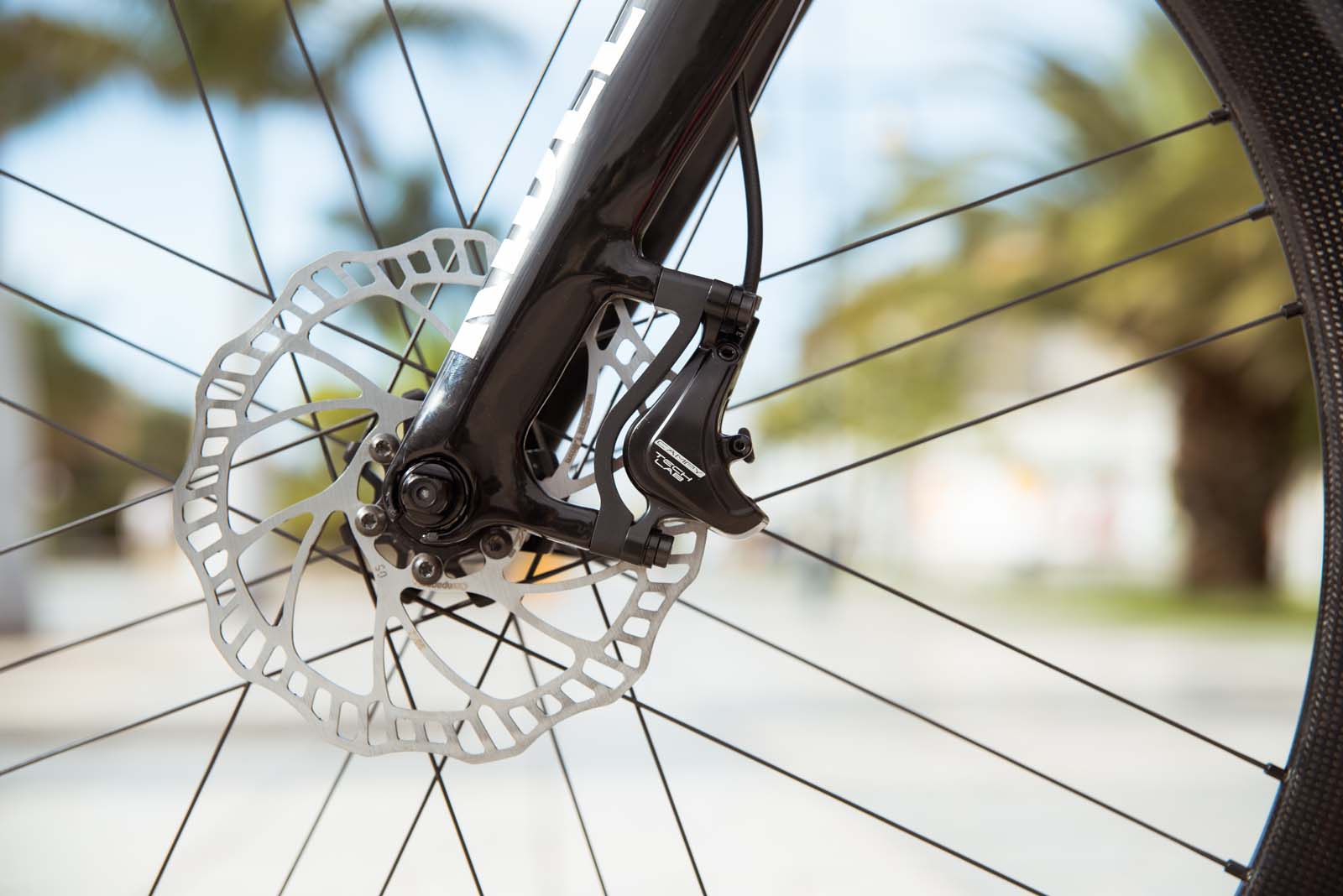
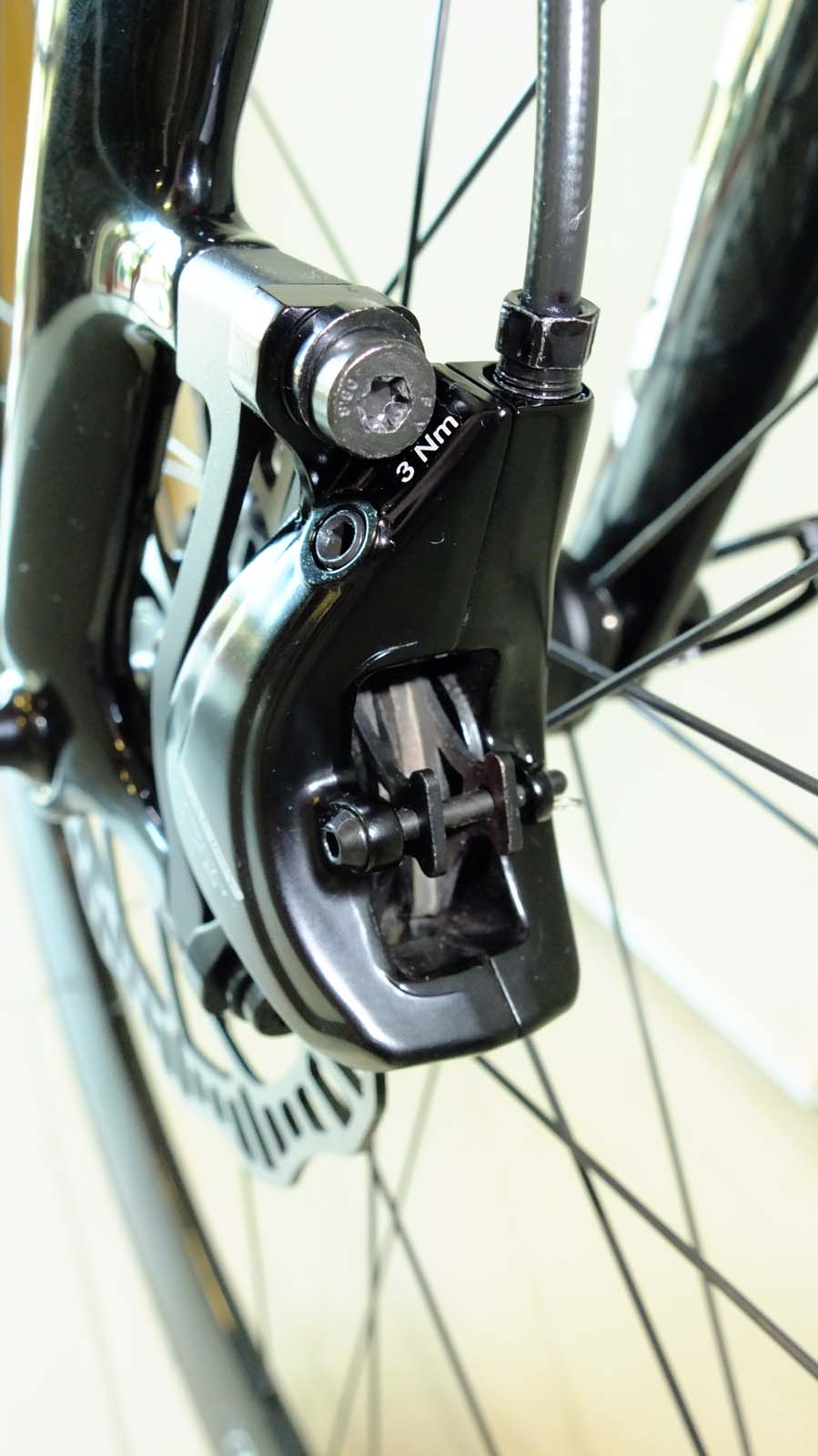
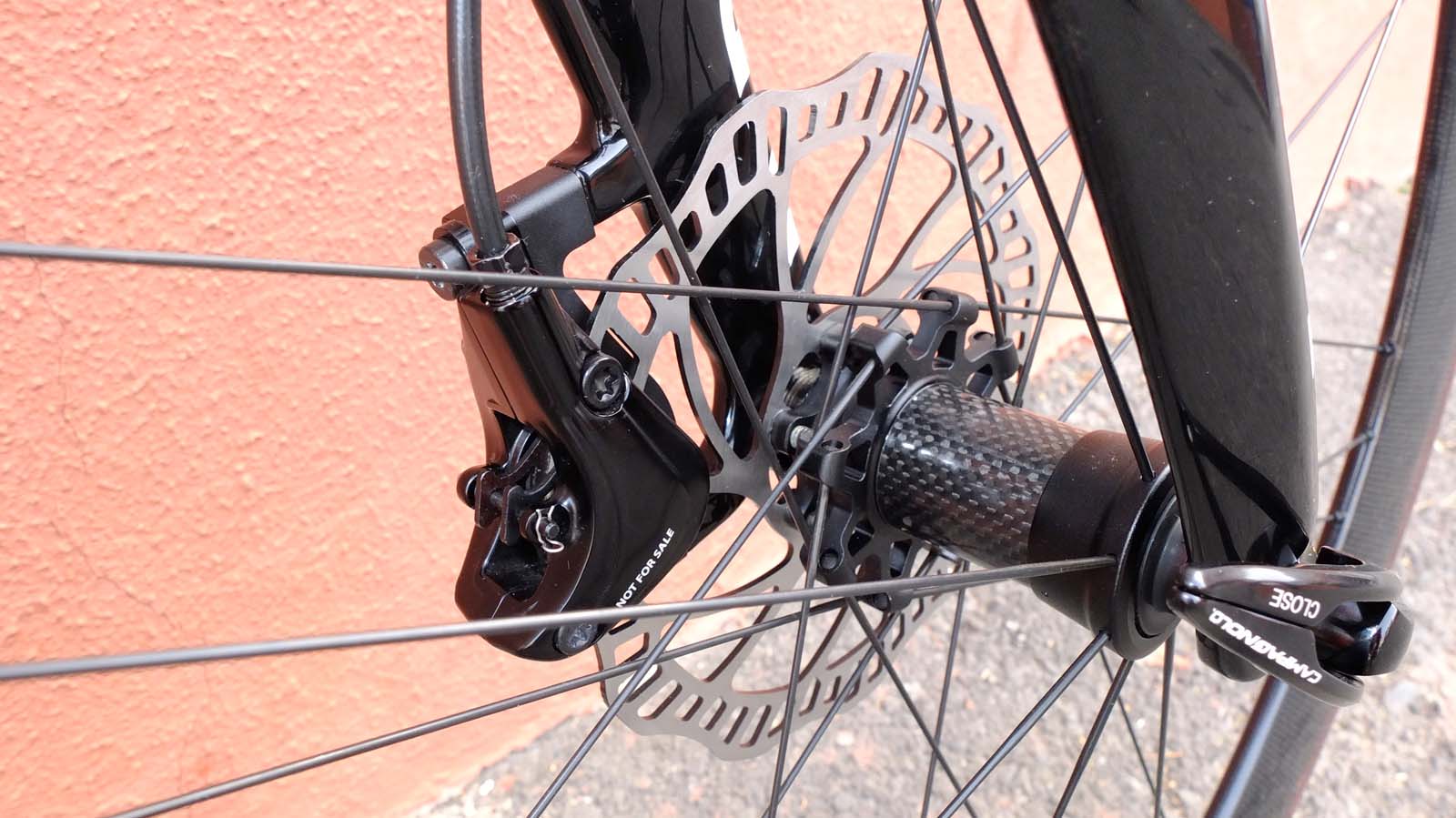
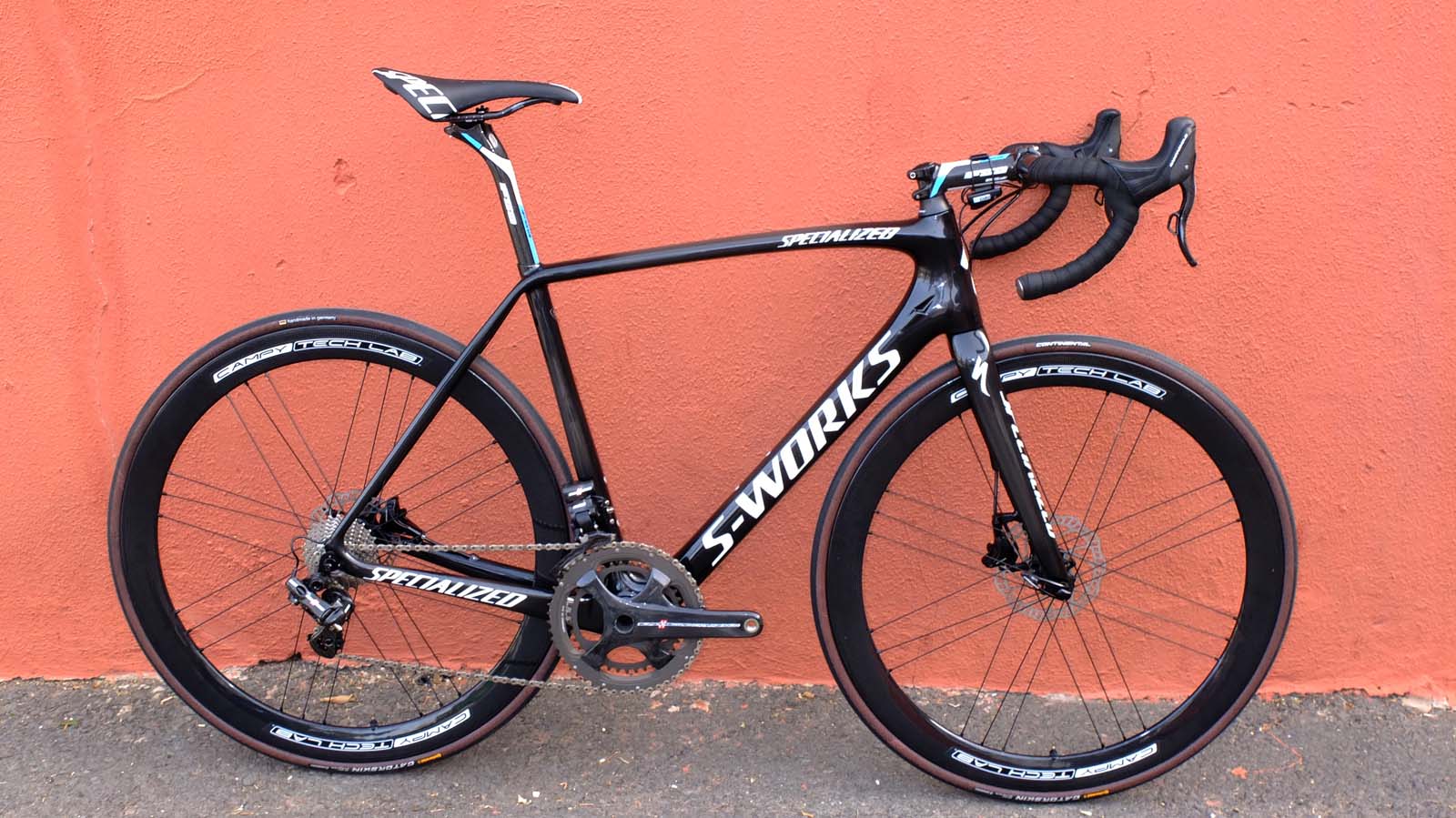
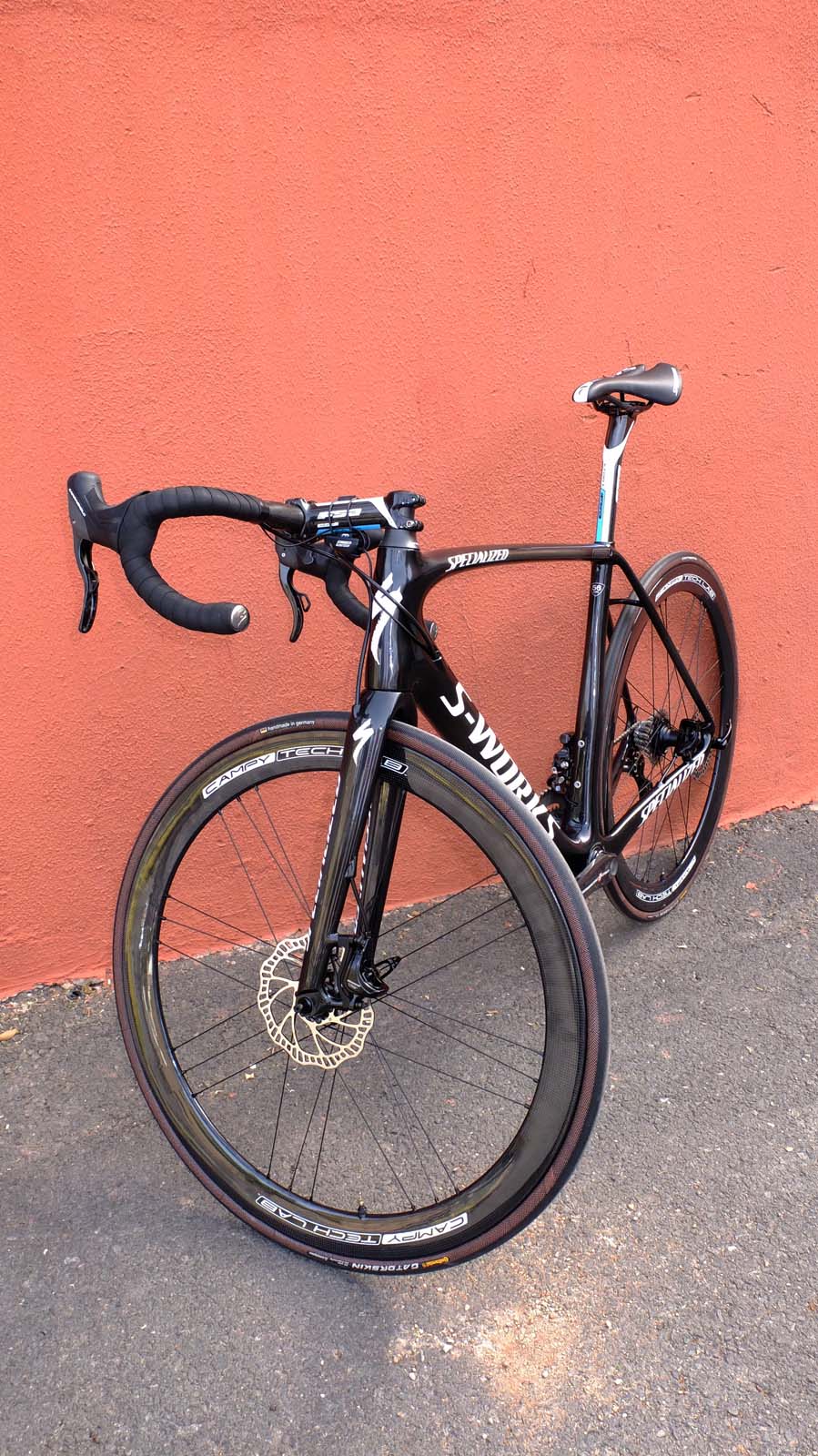
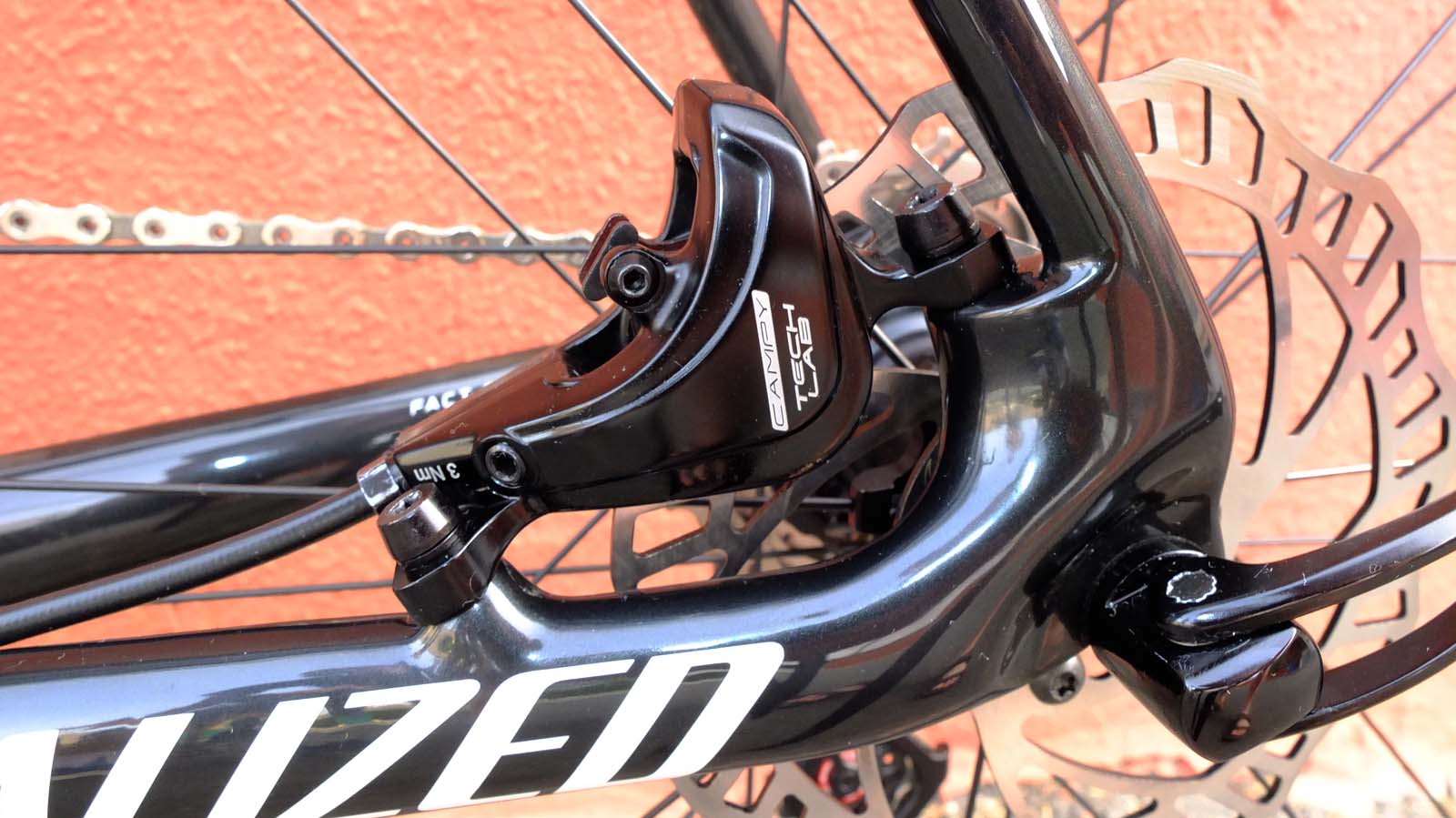
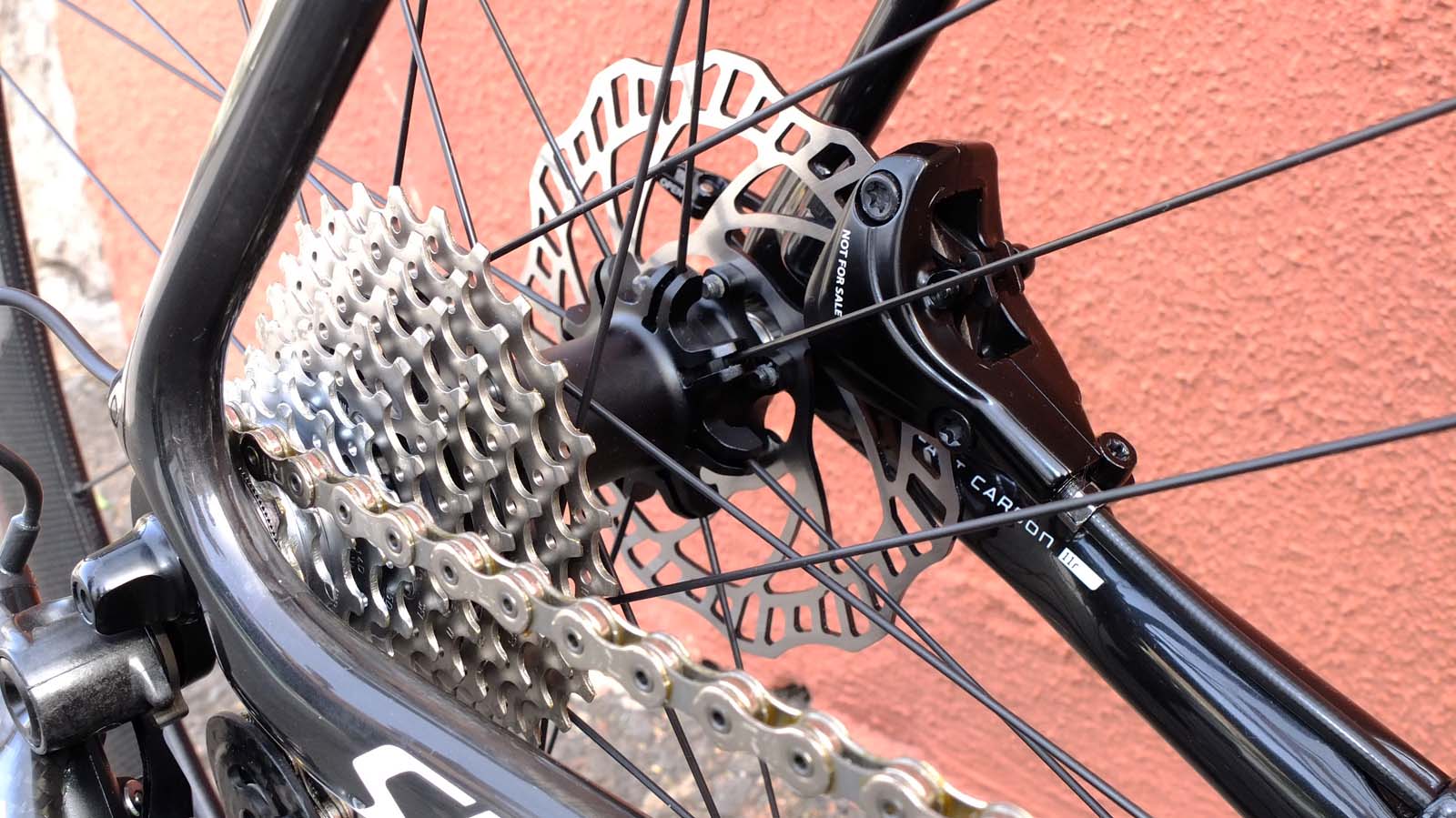
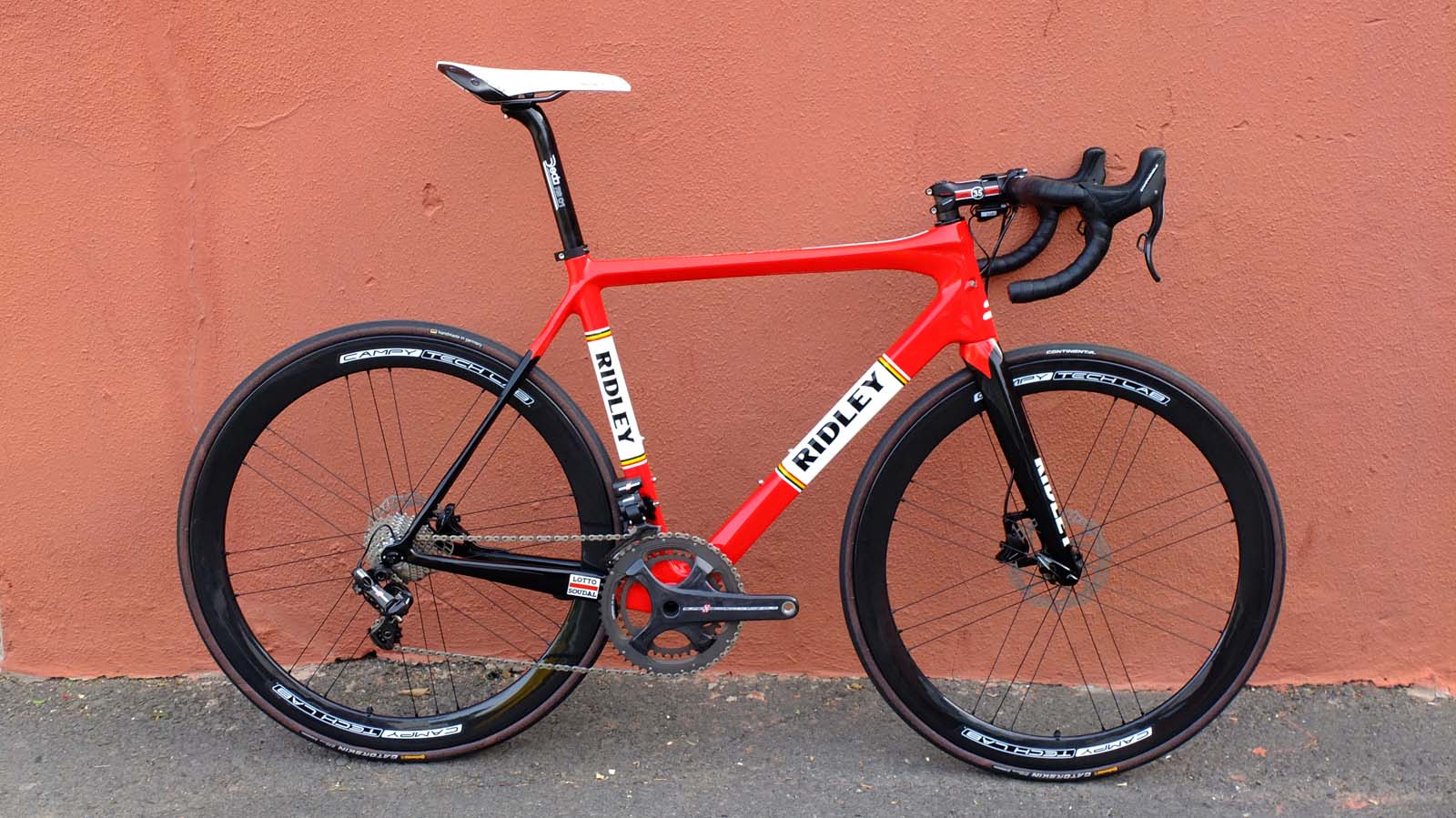
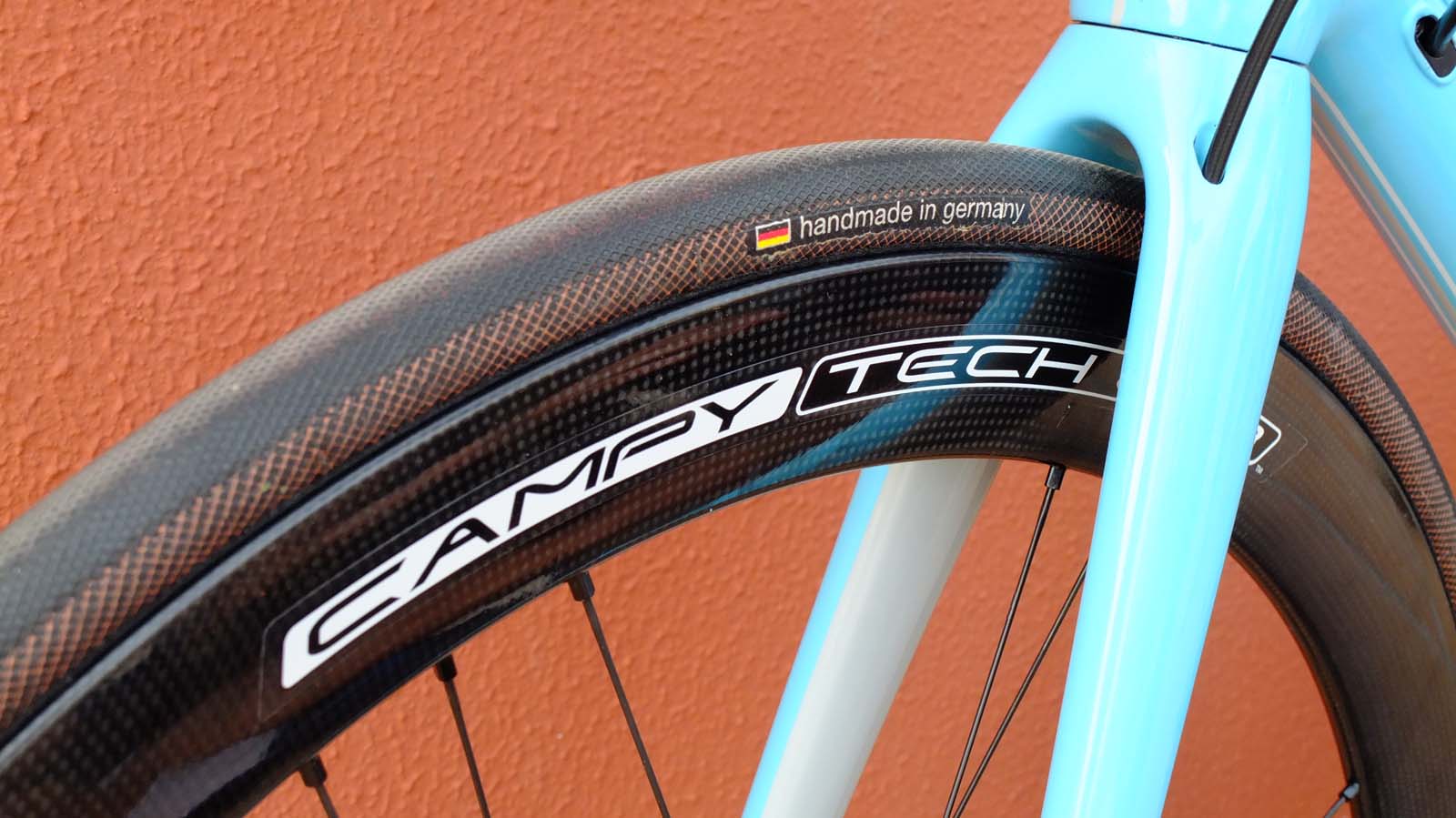
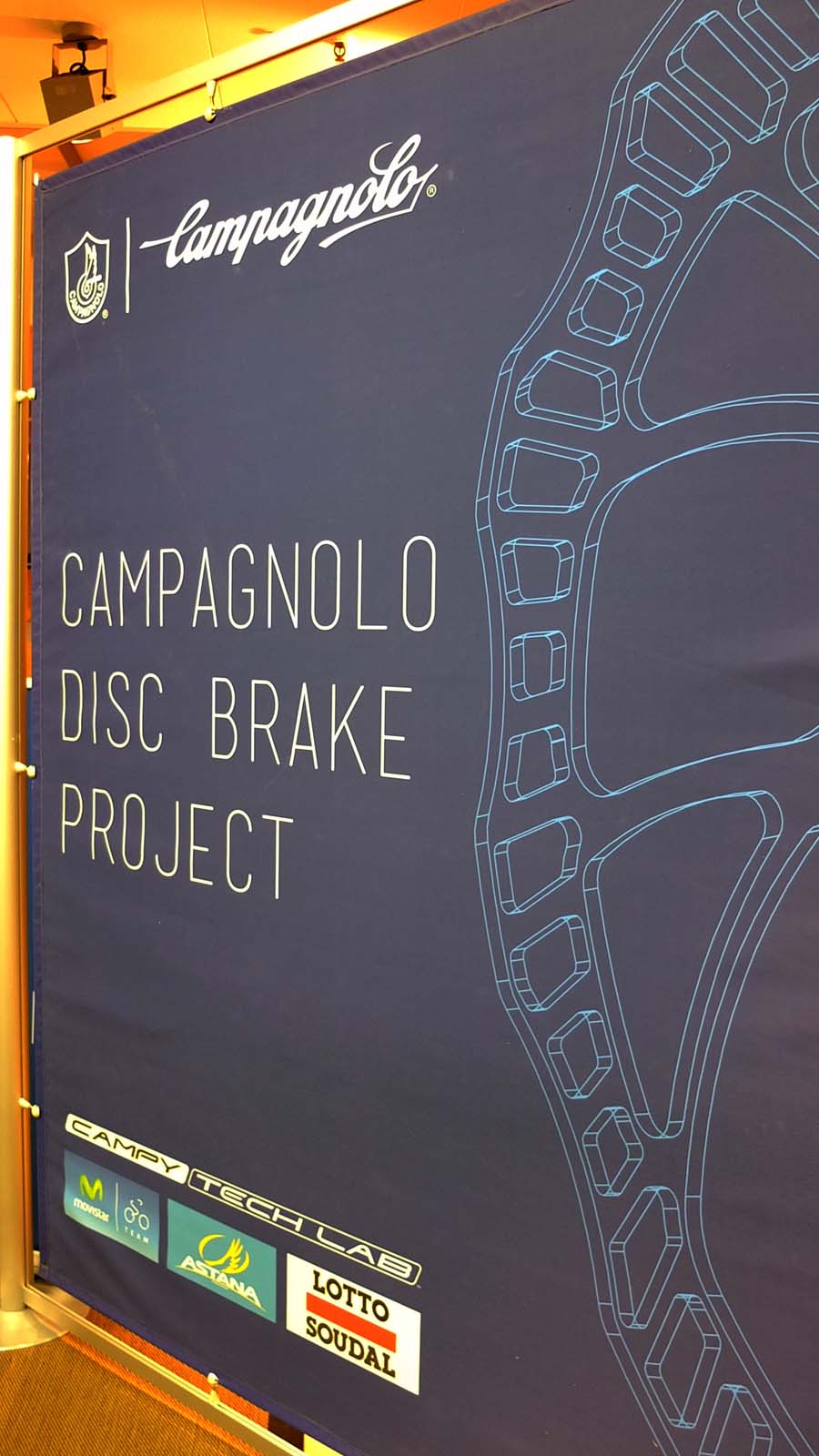
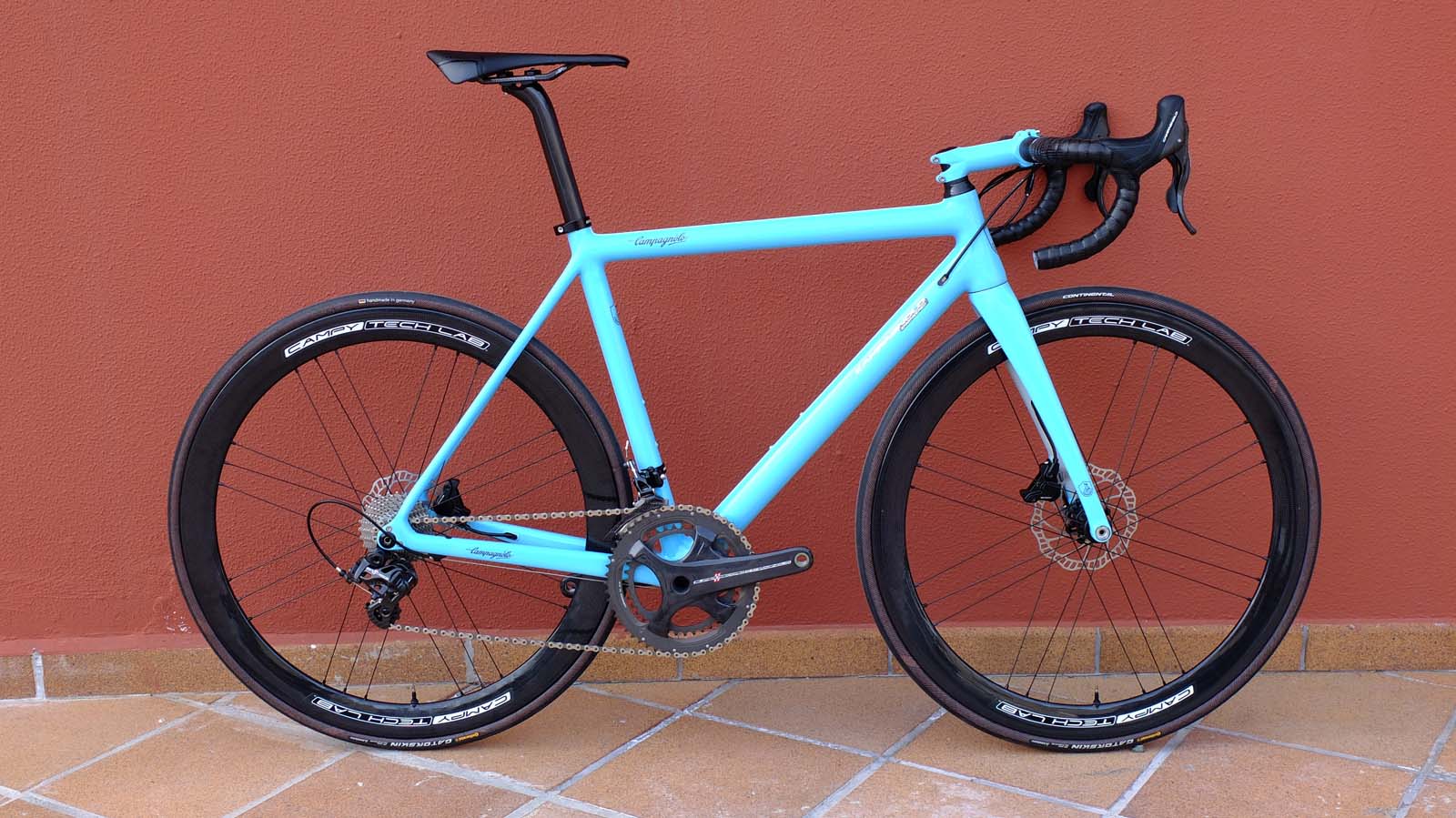
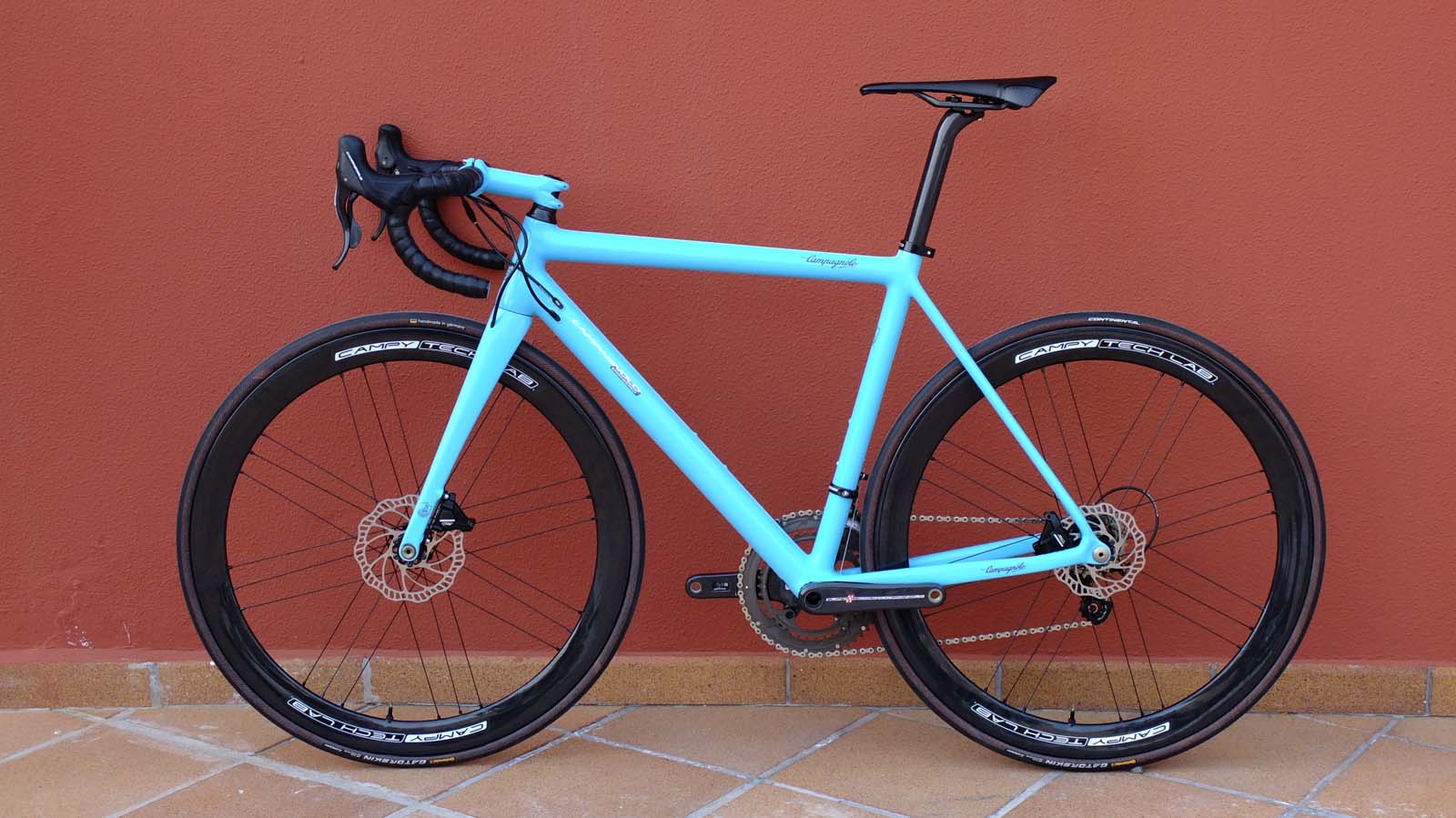
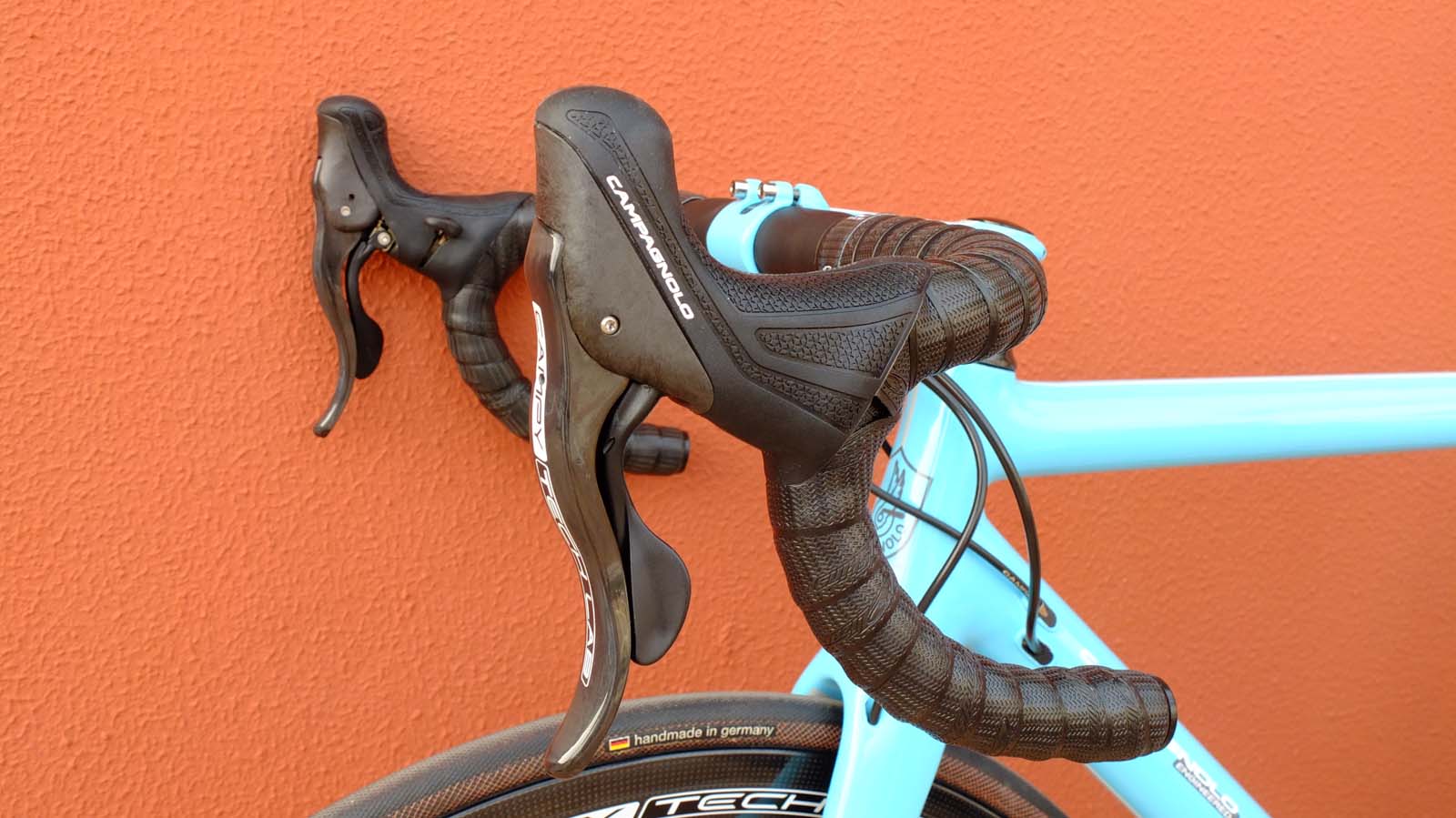
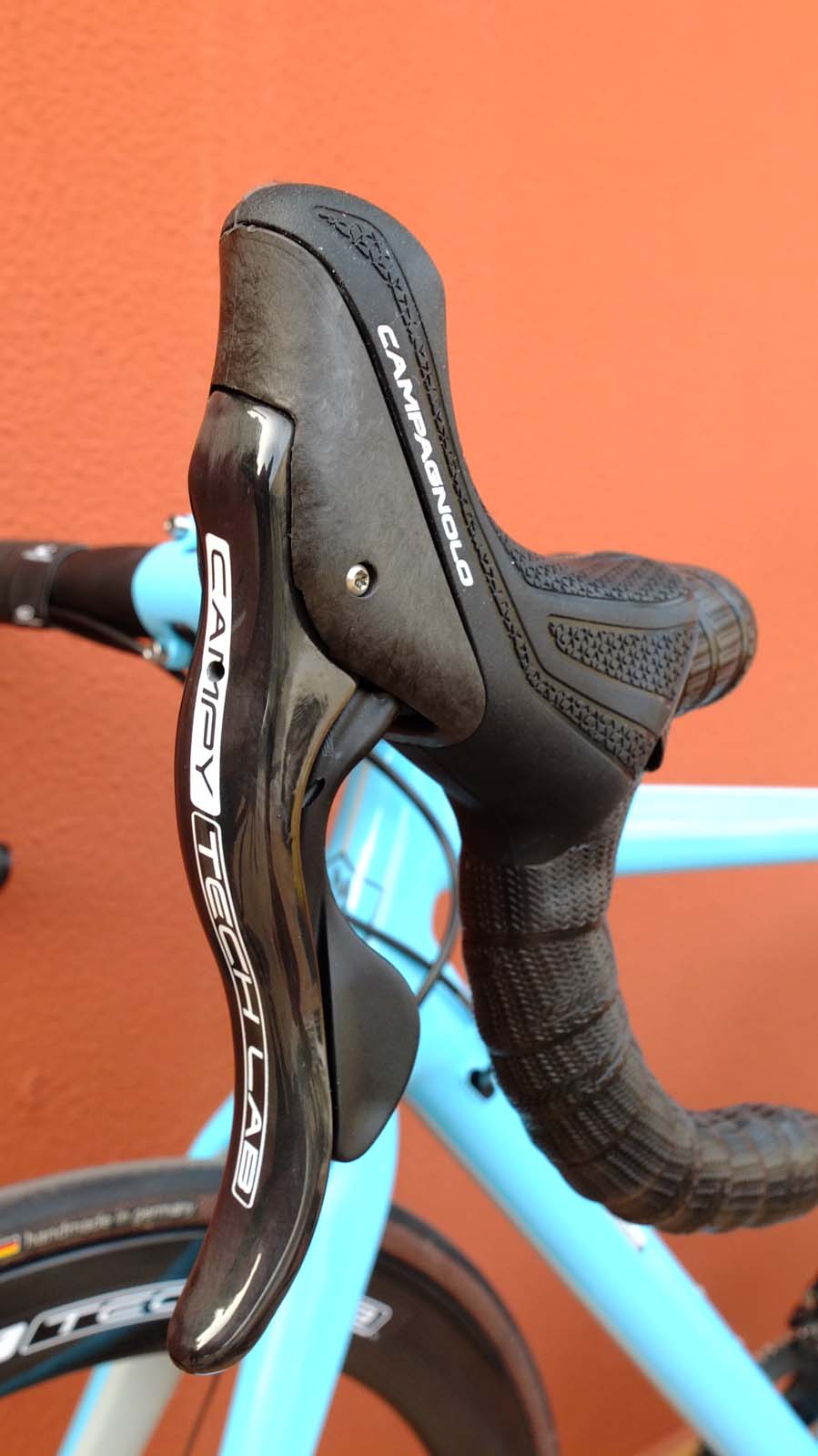
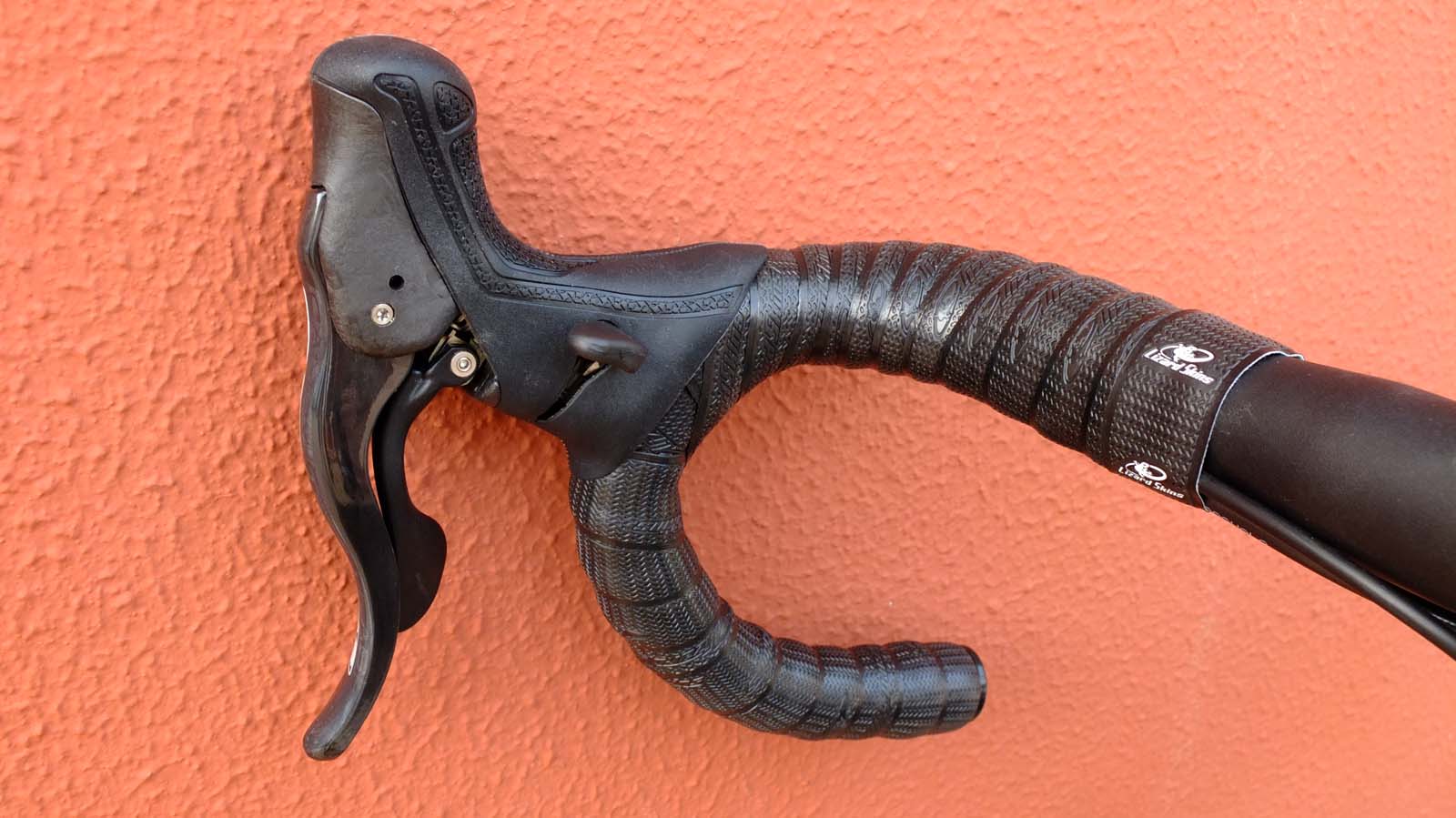
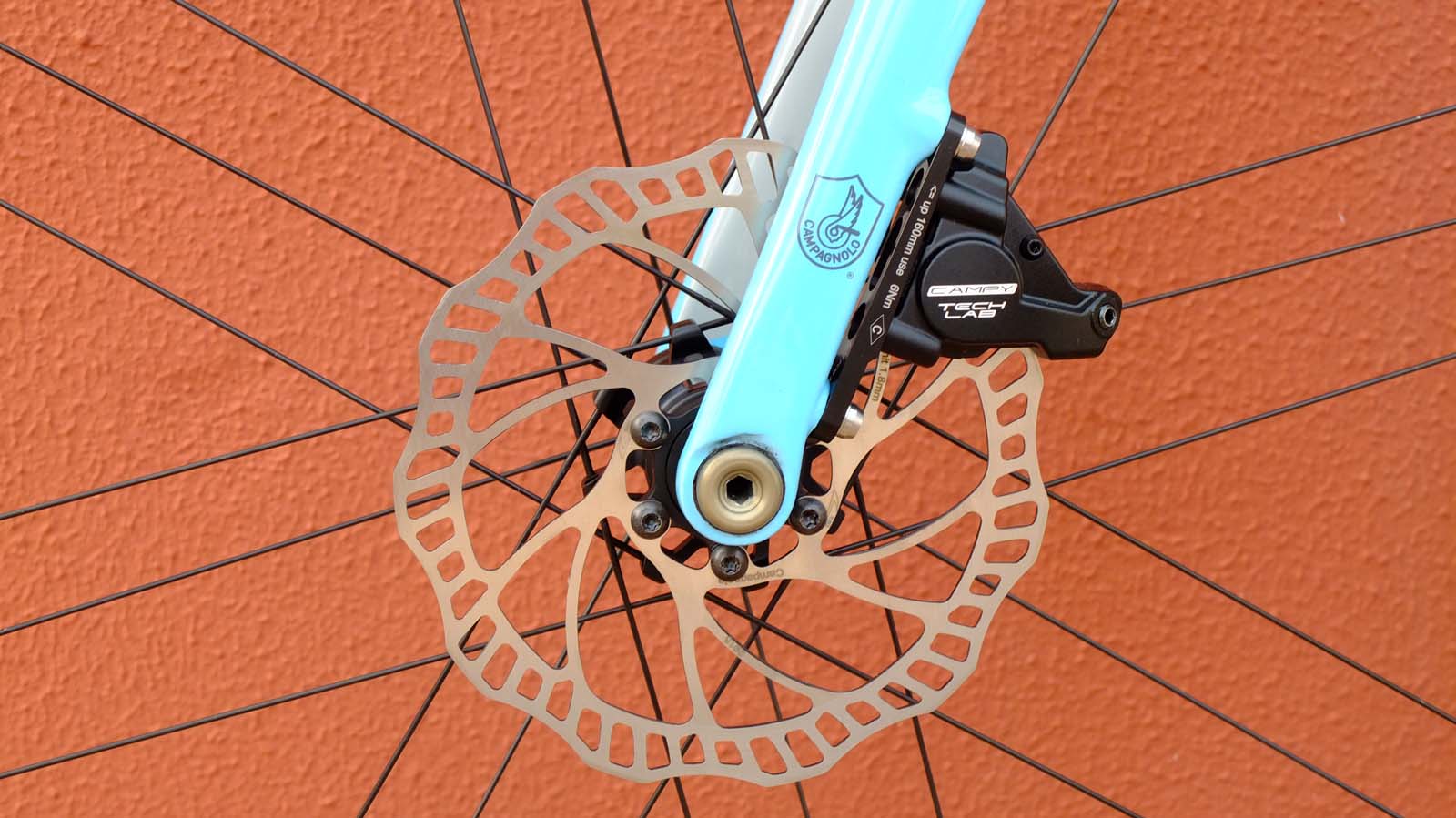
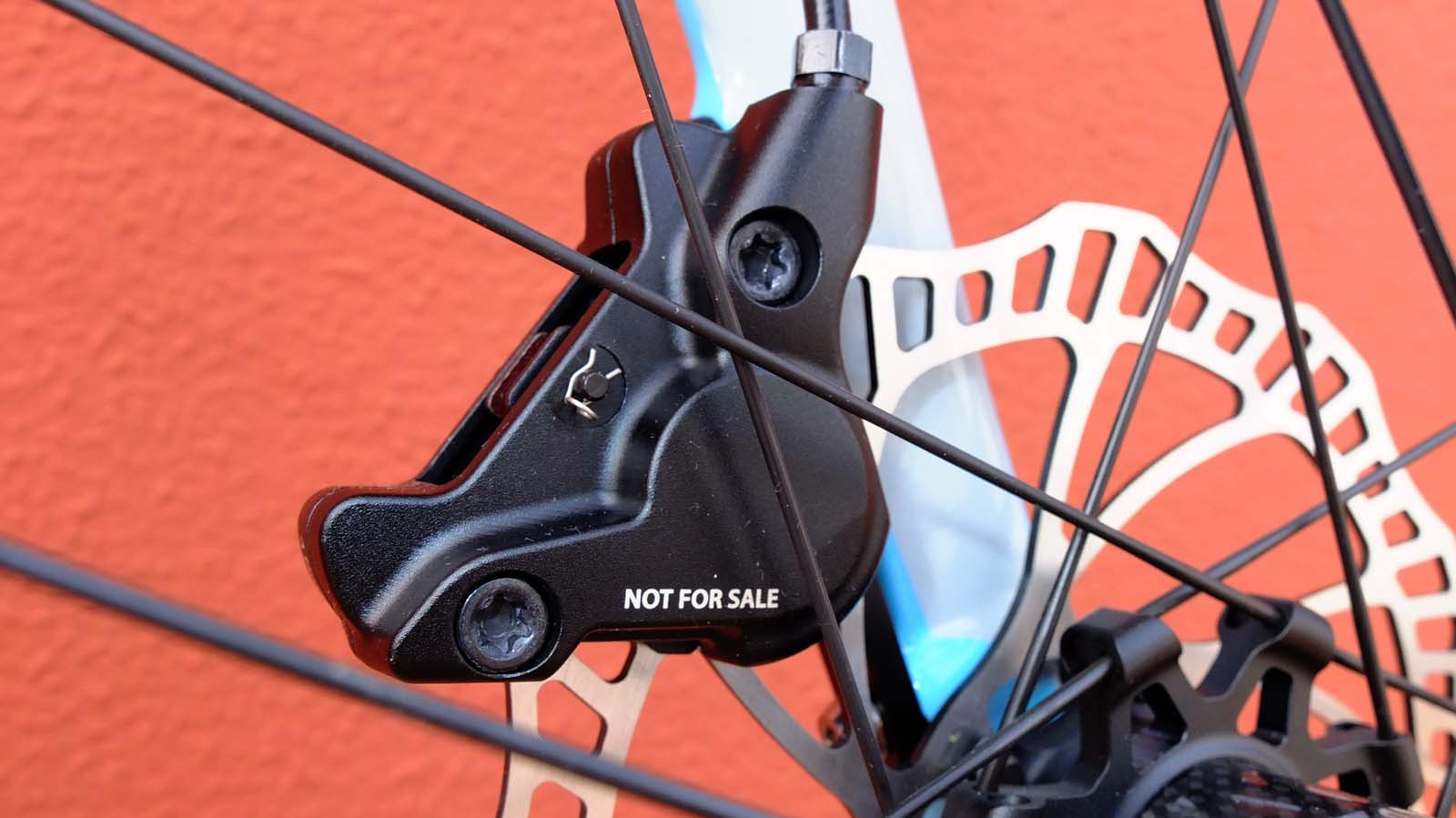
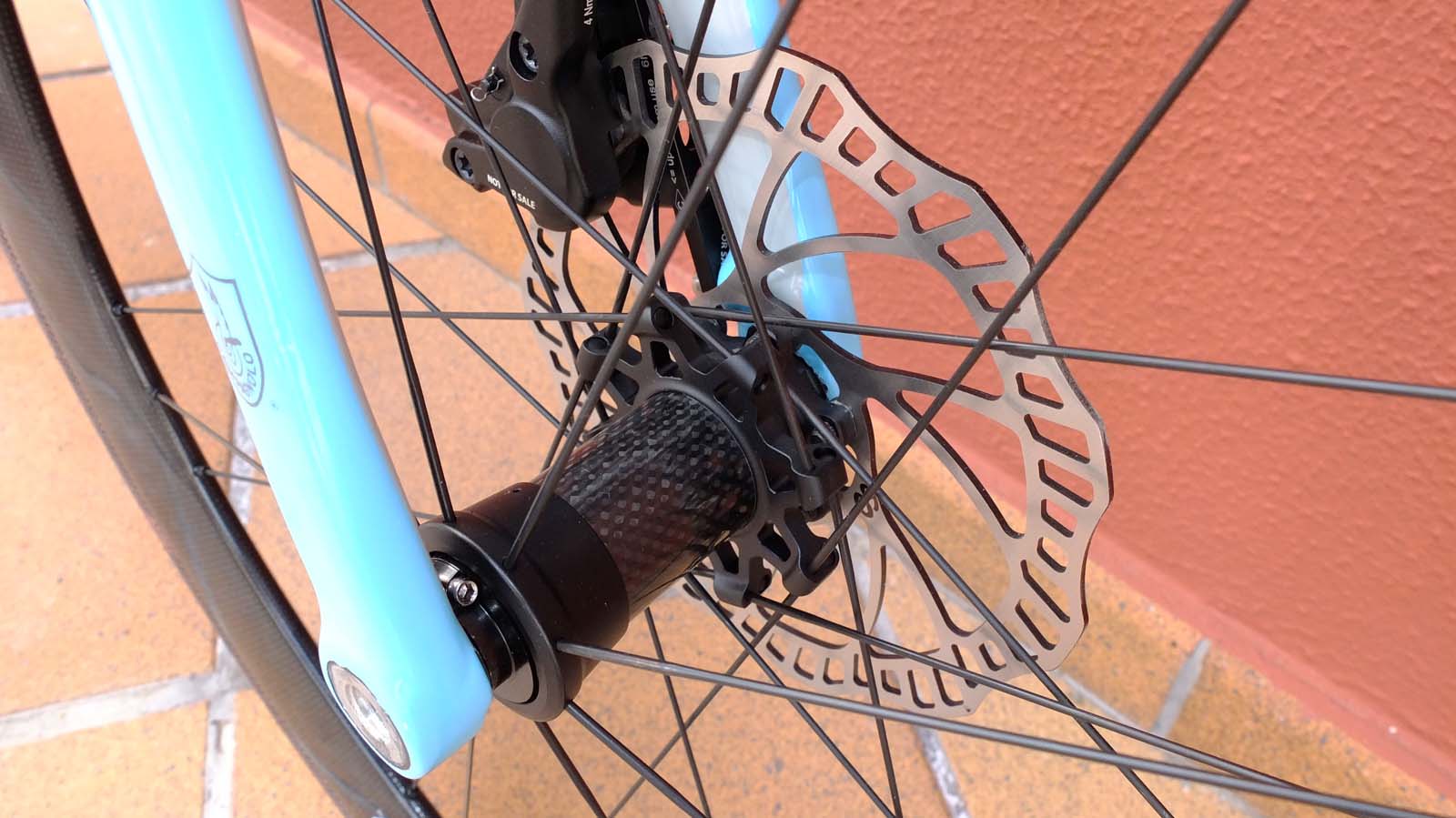
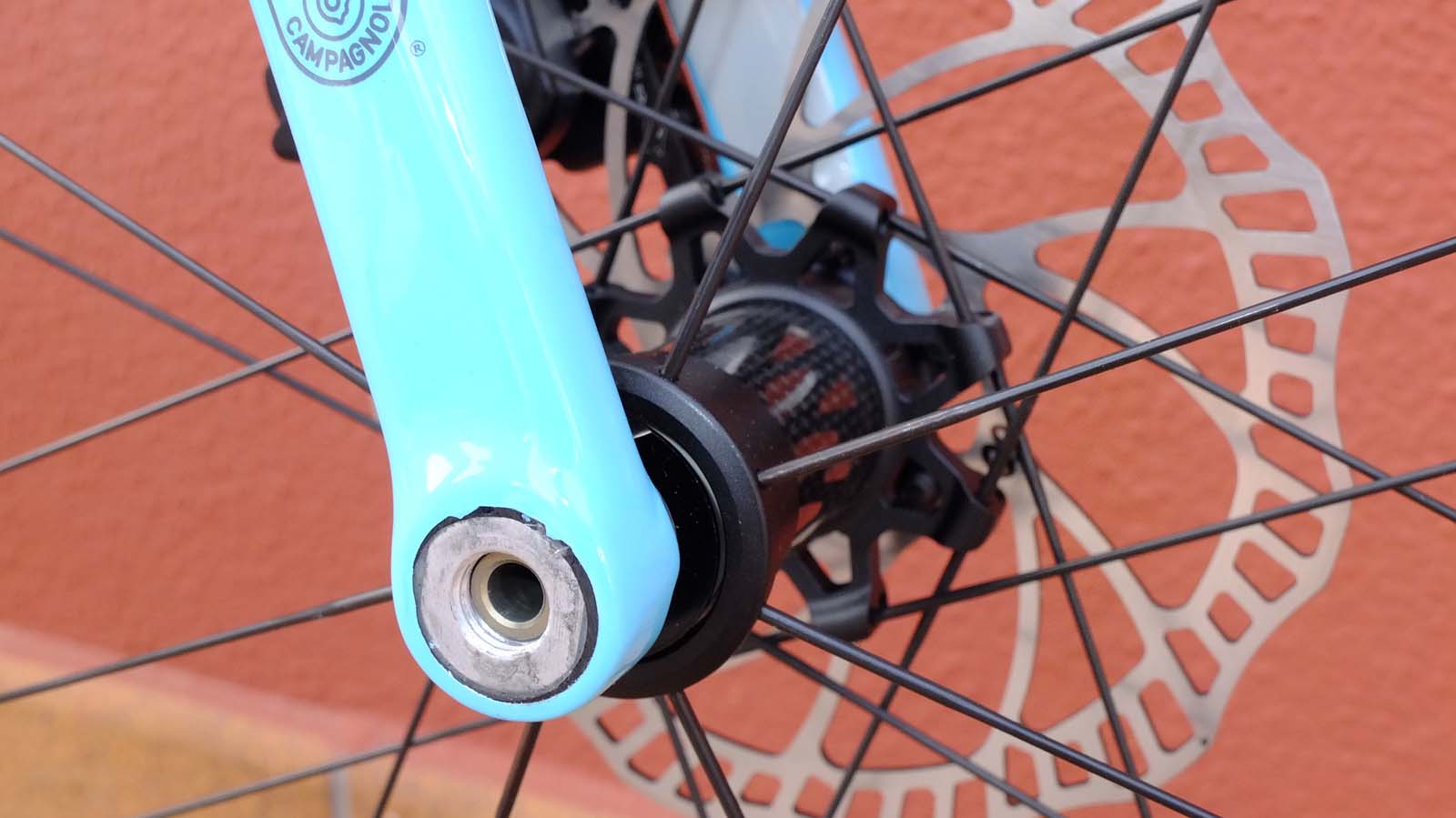
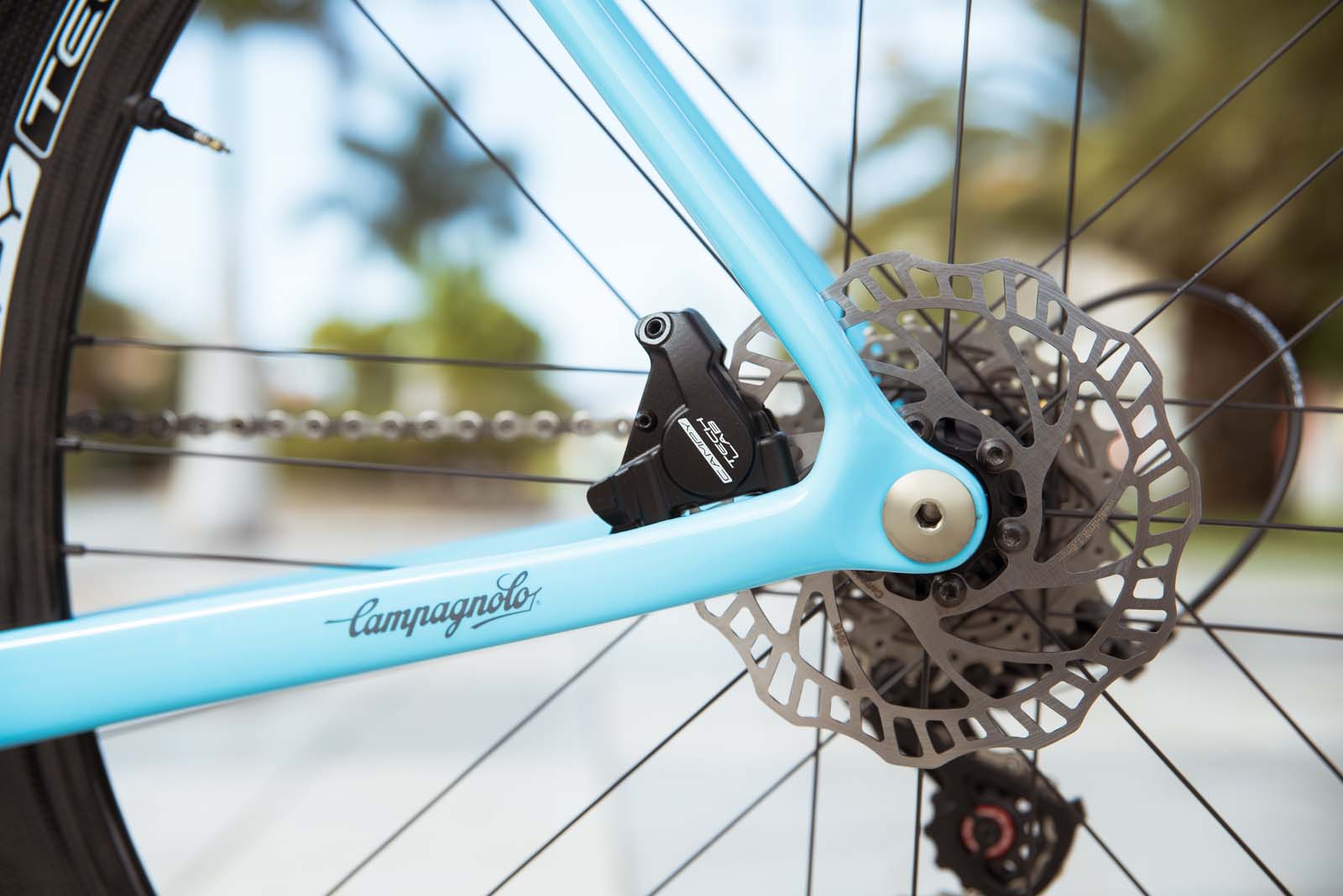
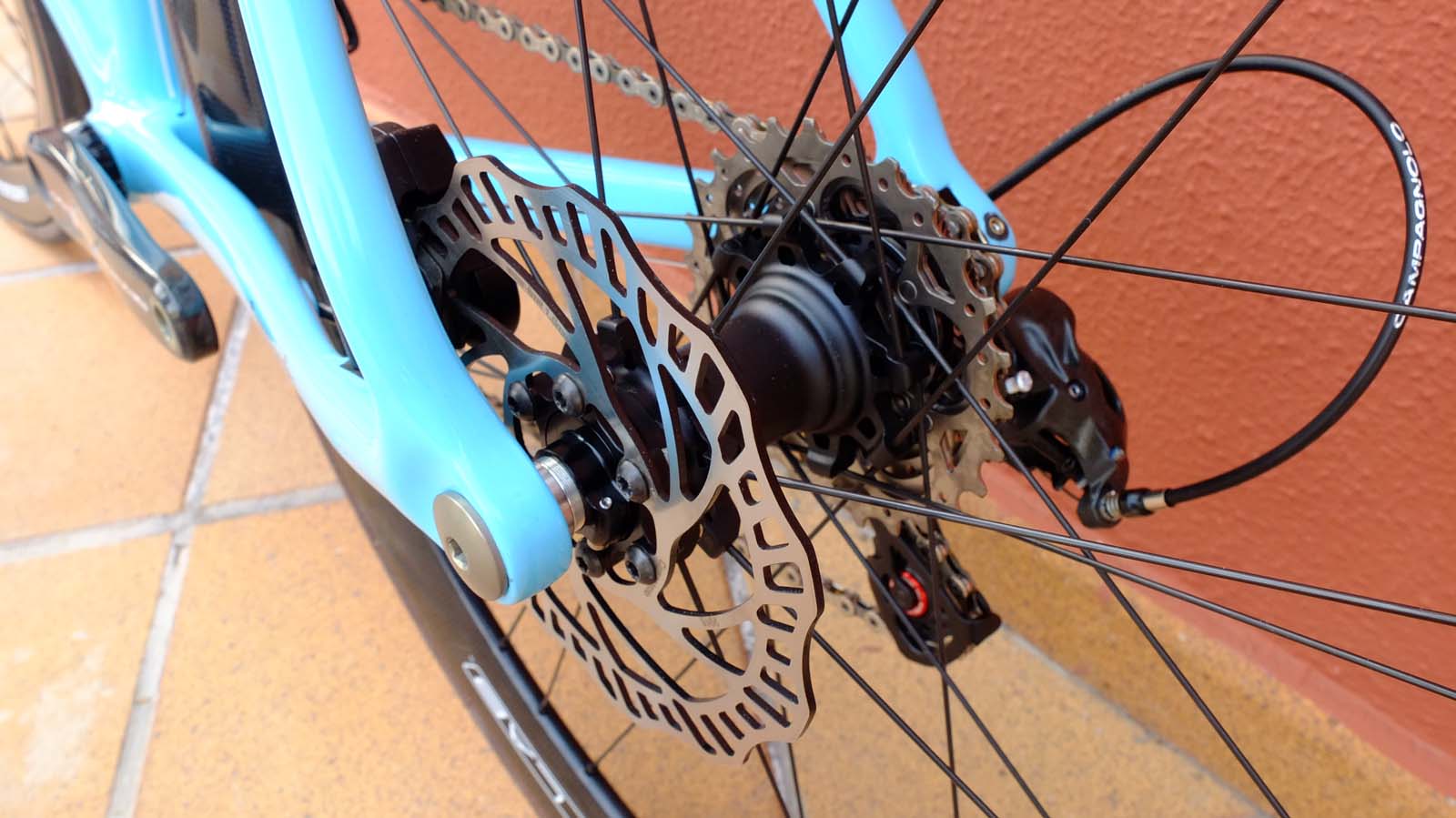
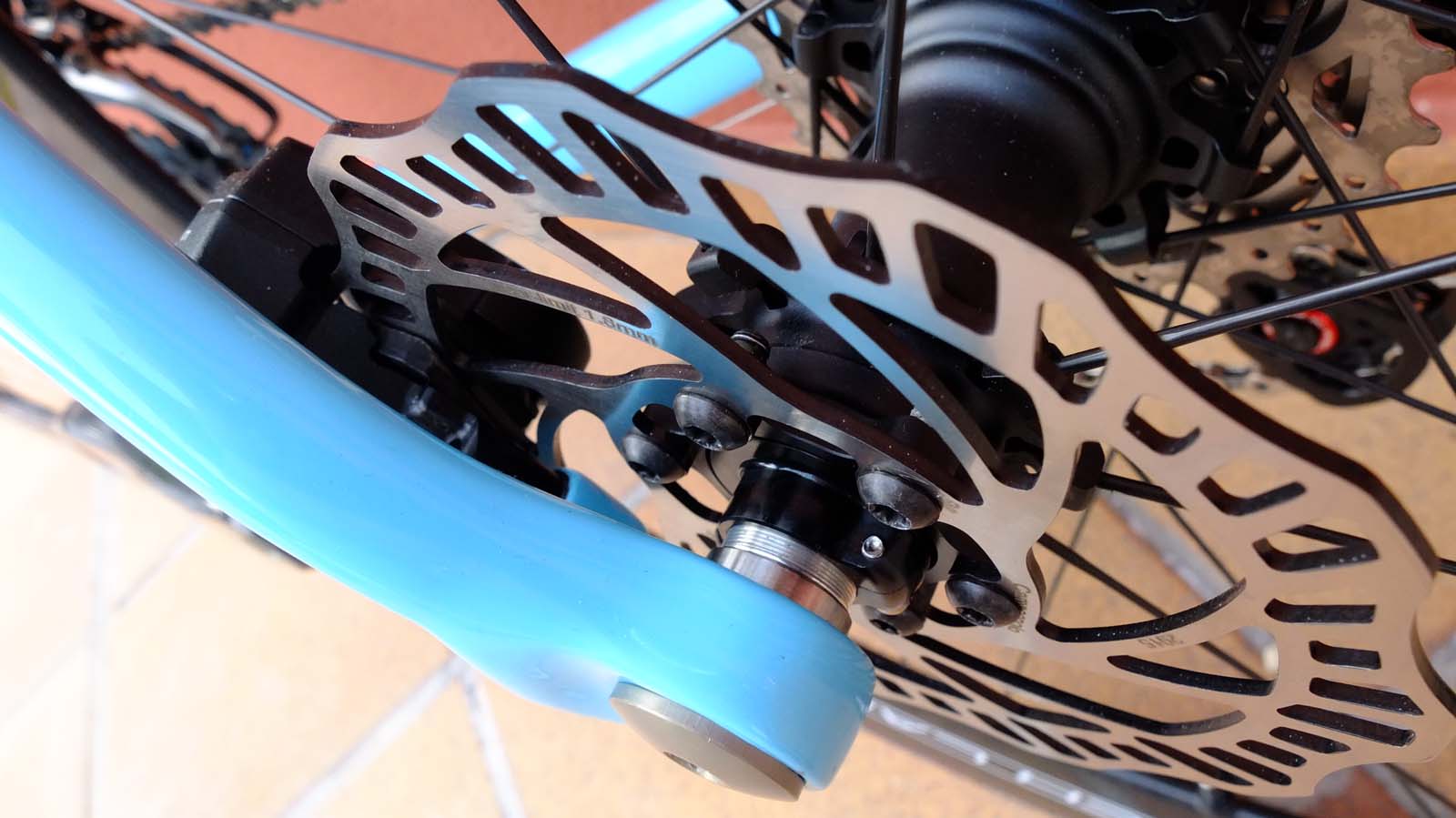
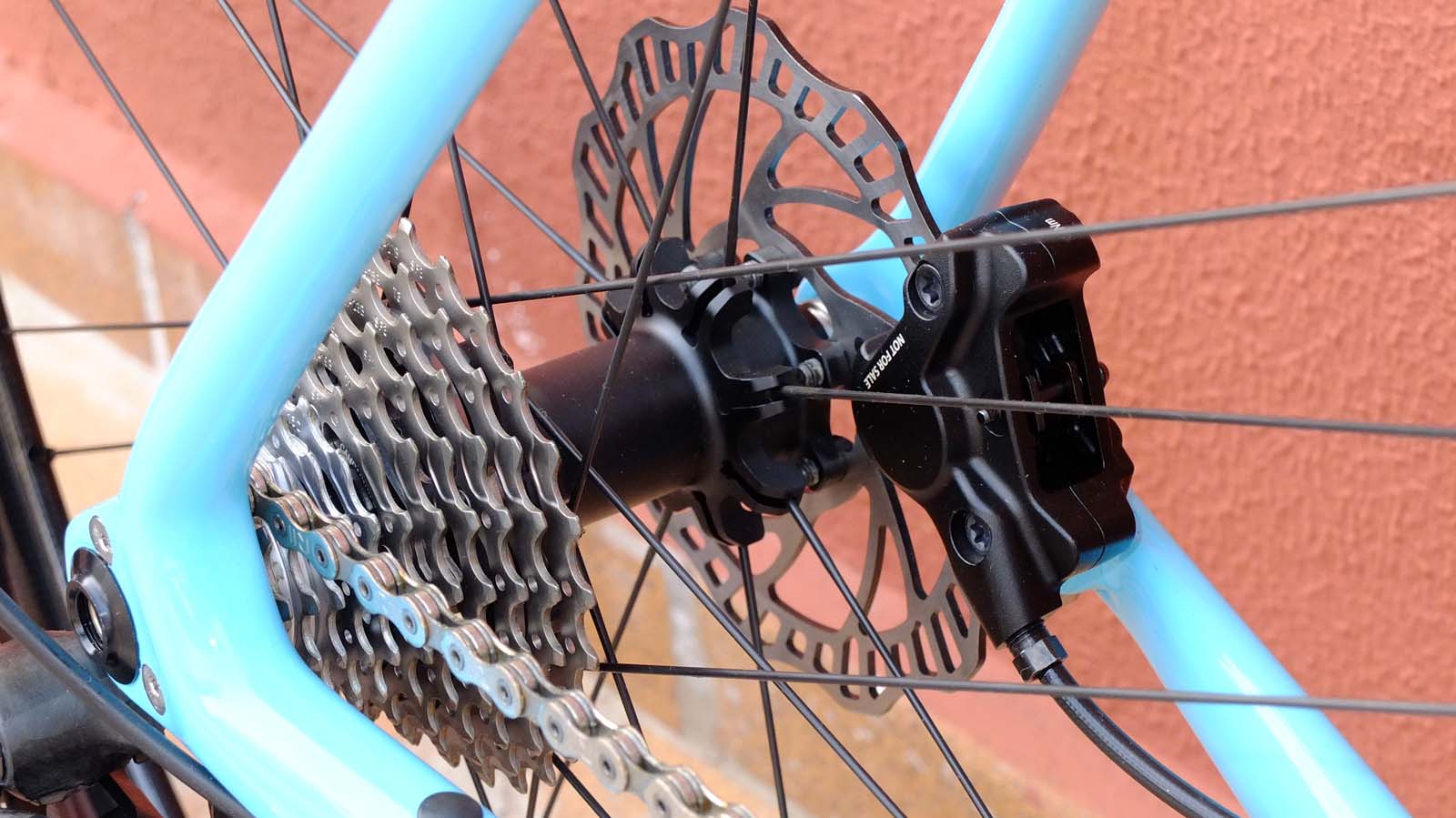
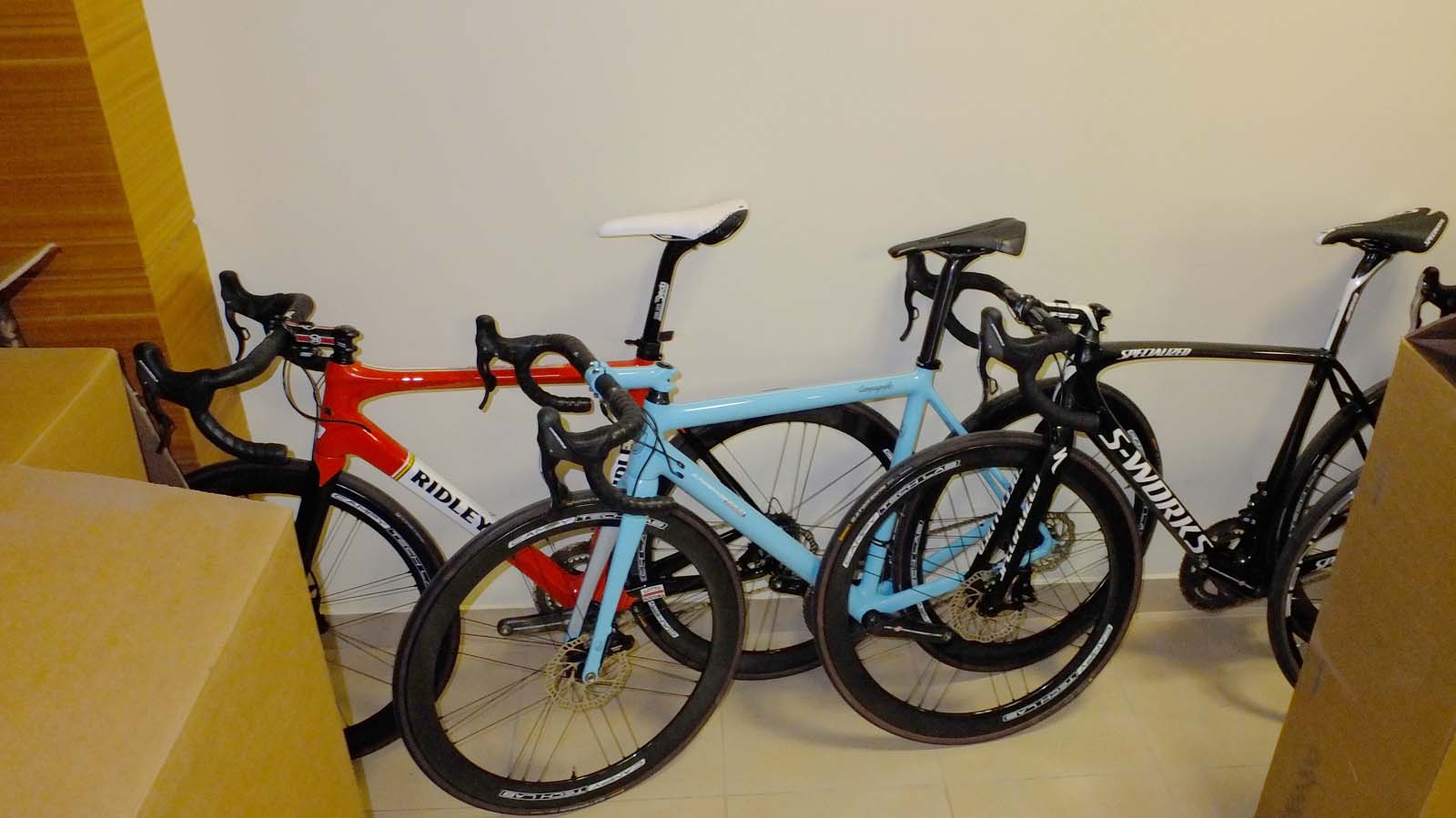
This article originally appeared on BikeRadar
At long last, Campagnolo has revealed what will be its first-ever road disc brakes — but the Italian manufacturer still isn't giving any details about them.
With well-established disc options from Shimano, SRAM and several others, we've been expecting something from Campagnolo for some time. Since the UCI decreed that disc-braked machines could be used in any professional road races in 2016, we assumed it was only a matter of time before the three WorldTour teams Campagnolo equips would be able to join the party.
After two days of product presentations and test rides on a recent press trip in the mountains of Gran Canaria, our time was almost up, with no mention of the elephant in the room. Then, finally, what we'd hoped to see was unveiled, as a trio of bikes was wheeled out onto the stage.
Aiming to represent the professional teams who already have the products in their possession, Campagnolo displayed a Lotto-Soudal Ridley Fenix SL Disc, an Astana Specialized S-Works Tarmac Disc and a Campagnolo-liveried Sarto that stood in for a Movistar Canyon.
Cautious field testing
Campagnolo manages its field testing by labeling test product with 'Campy Tech Lab' instead of Campagnolo's traditional logo.
Campagnolo says this serves two purposes, firstly to make it clear that the components are still at the final testing stage, but also to ensure that these items don't escape in to the general marketplace. Teams are supplied with Campy Tech Lab inventory on a contractural loan basis, whereby all parts must be returned to Campagnolo, where they will then mostly be scrapped.
Essentially Campy Tech Lab is the combination of the creative work of around 50 R&D engineers and testers in Campagnolo's Vicenza Headquarters, and the product development and feedback being carried out by professional riders in the world's biggest races. Each of Campagnolo's sponsored teams already has some disc-equipped bikes ready for use in the Spring Classics, so expect to see them in the bunch soon.
Get The Leadout Newsletter
The latest race content, interviews, features, reviews and expert buying guides, direct to your inbox!
Until the company is completely satisfied that the disc brakes operate perfectly, they won't be released. Reps say they've taken note of what their competitors have done, and are aiming to improve on it.
Only when a product is proven to have race-winning performance, can maintain its performance over time and surpass all Campagnolo's safety standards will it be signed off by the company, Campagnolo reps said, and for this reason we weren't able to test ride any of the disc models, and Campagnolo wasn't forthcoming with concrete technical details.
Campagnolo says it believe discs are the future of road racing.
Forbidden fruits
Despite the lack of information, the fruits of the Campagnolo's disc brake project were plain to see.
So what can we surmise from seeing but not actually riding the brakes? Each of the three bikes we were shown had a 160mm front and a 140mm rear rotor.
UCI technical manager Mark Barfield told BikeRadar that the UCI is specifying 160mm rotors with 12x100mm front and 12x142mm rear thru axles for pro teams and neutral service for 2016.
While the wheels on the Specialized and Ridley bikes shown have quick-release skewers, the Sarto has twin thru-axles, secured by a 6mm hex key. There was no word on how quickly these wheels could be removed using this setup, but we'd say this arrangement, as neat as it looks, is merely a development tool and possibly even a quirk of the Sarto frameset used for this event. We're sure Campagnolo does have a thru-axle retention system in development and testing, but we'll have to wait a little longer to see it.
All of the new discs are hydraulic - Campagnolo hasn't even entertained the idea of mechanical disc brakes - which is no surprise for a product initially aimed at top-level racing, and with hydraulic discs always proving superior to their mechanical cousins, we won't lose any sleep over that. The hydraulic brakes are compatible with both mechanical and EPS levers though, their only external difference being the inboard thumb shifter.
As a longstanding wheel manufacturer, every bike featured Campy Tech Lab-logoed wheels, which are a further, logical part of Campagnolo's disc brake project.
All we were told is that there will eventually be a variety of disc-ready wheels in aluminium and carbon.
Those presented to us were all identical, with 24-hole Mega G3 spoking front and rear, asymmetric flange widths, straight-pull spokes, and full-carbon rims that looked to be 50mm deep and roughly 24mm wide, since the 25mm Continental Competition tubulars fitted were almost perfectly aligned with the rim's outer face. Although the rims look usefully wide, their profile is flat-sided, resembling a snub-nosed or truncated isosceles triangle.
The finish of the hydraulic levers, calipers and rotors already looks very polished, aside from the 'Not for sale' additions. There is no definite public release date for any of Campagnolo's disc brake technology yet, but the brand seems upbeat about it being sooner rather than later, so watch this space.